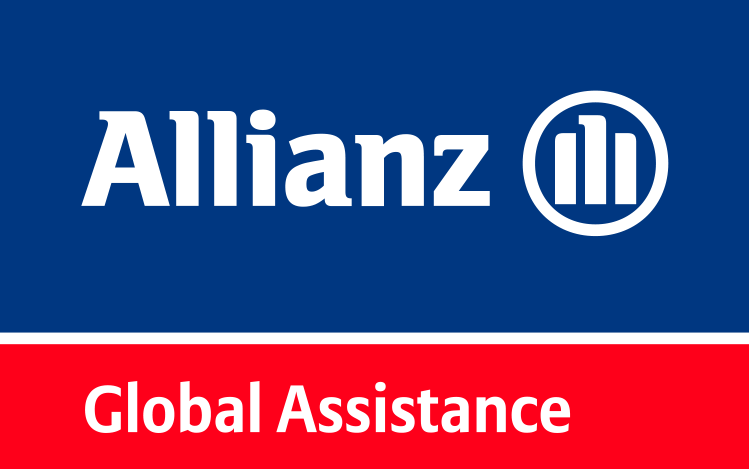- Auto Insurance Best Car Insurance Cheapest Car Insurance Compare Car Insurance Quotes Best Car Insurance For Young Drivers Best Auto & Home Bundles Cheapest Cars To Insure
- Home Insurance Best Home Insurance Best Renters Insurance Cheapest Homeowners Insurance Types Of Homeowners Insurance
- Life Insurance Best Life Insurance Best Term Life Insurance Best Senior Life Insurance Best Whole Life Insurance Best No Exam Life Insurance
- Pet Insurance Best Pet Insurance Cheap Pet Insurance Pet Insurance Costs Compare Pet Insurance Quotes
- Travel Insurance Best Travel Insurance Cancel For Any Reason Travel Insurance Best Cruise Travel Insurance Best Senior Travel Insurance
- Health Insurance Best Health Insurance Plans Best Affordable Health Insurance Best Dental Insurance Best Vision Insurance Best Disability Insurance
- Credit Cards Best Credit Cards 2024 Best Balance Transfer Credit Cards Best Rewards Credit Cards Best Cash Back Credit Cards Best Travel Rewards Credit Cards Best 0% APR Credit Cards Best Business Credit Cards Best Credit Cards for Startups Best Credit Cards For Bad Credit Best Cards for Students without Credit
- Credit Card Reviews Chase Sapphire Preferred Wells Fargo Active Cash® Chase Sapphire Reserve Citi Double Cash Citi Diamond Preferred Chase Ink Business Unlimited American Express Blue Business Plus
- Credit Card by Issuer Best Chase Credit Cards Best American Express Credit Cards Best Bank of America Credit Cards Best Visa Credit Cards
- Credit Score Best Credit Monitoring Services Best Identity Theft Protection
- CDs Best CD Rates Best No Penalty CDs Best Jumbo CD Rates Best 3 Month CD Rates Best 6 Month CD Rates Best 9 Month CD Rates Best 1 Year CD Rates Best 2 Year CD Rates Best 5 Year CD Rates
- Checking Best High-Yield Checking Accounts Best Checking Accounts Best No Fee Checking Accounts Best Teen Checking Accounts Best Student Checking Accounts Best Joint Checking Accounts Best Business Checking Accounts Best Free Checking Accounts
- Savings Best High-Yield Savings Accounts Best Free No-Fee Savings Accounts Simple Savings Calculator Monthly Budget Calculator: 50/30/20
- Mortgages Best Mortgage Lenders Best Online Mortgage Lenders Current Mortgage Rates Best HELOC Rates Best Mortgage Refinance Lenders Best Home Equity Loan Lenders Best VA Mortgage Lenders Mortgage Refinance Rates Mortgage Interest Rate Forecast
- Personal Loans Best Personal Loans Best Debt Consolidation Loans Best Emergency Loans Best Home Improvement Loans Best Bad Credit Loans Best Installment Loans For Bad Credit Best Personal Loans For Fair Credit Best Low Interest Personal Loans
- Student Loans Best Student Loans Best Student Loan Refinance Best Student Loans for Bad or No Credit Best Low-Interest Student Loans
- Business Loans Best Business Loans Best Business Lines of Credit Apply For A Business Loan Business Loan vs. Business Line Of Credit What Is An SBA Loan?
- Investing Best Online Brokers Top 10 Cryptocurrencies Best Low-Risk Investments Best Cheap Stocks To Buy Now Best S&P 500 Index Funds Best Stocks For Beginners How To Make Money From Investing In Stocks
- Retirement Best Gold IRAs Best Investments for a Roth IRA Best Bitcoin IRAs Protecting Your 401(k) In a Recession Types of IRAs Roth vs Traditional IRA How To Open A Roth IRA
- Business Formation Best LLC Services Best Registered Agent Services How To Start An LLC How To Start A Business
- Web Design & Hosting Best Website Builders Best E-commerce Platforms Best Domain Registrar
- HR & Payroll Best Payroll Software Best HR Software Best HRIS Systems Best Recruiting Software Best Applicant Tracking Systems
- Payment Processing Best Credit Card Processing Companies Best POS Systems Best Merchant Services Best Credit Card Readers How To Accept Credit Cards
- More Business Solutions Best VPNs Best VoIP Services Best Project Management Software Best CRM Software Best Accounting Software
- Debt relief Best debt management Best debt settlement A debt management plan: Is it best for you? What is debt settlement and how does it work? Debt consolidation vs. debt settlement Should you settle your debt or pay in full? How to negotiate a debt settlement on your own
- Debt collection Can a debt collector garnish my bank account or my wages? Can credit card companies garnish your wages? What is the Fair Debt Collection Practices Act?
- Bankruptcy How much does it cost to file for bankruptcy? What is Chapter 7 bankruptcy? What is Chapter 13 bankruptcy? Can medical bankruptcy help with medical bills?
- More payoff strategies Tips and tricks to get of your debt in a year Don't make these mistakes when climbing out of debt How credit counseling can help you get out of debt What is the debt avalanche method? What is the debt snowball method?
- Manage Topics
- Investigations
- Visual Explainers
- Newsletters
- Abortion news
- Coronavirus
- Climate Change
- Vertical Storytelling
- Corrections Policy
- College Football
- High School Sports
- H.S. Sports Awards
- Sports Betting
- College Basketball (M)
- College Basketball (W)
- For The Win
- Sports Pulse
- Weekly Pulse
- Buy Tickets
- Sports Seriously
- Sports+ States
- Celebrities
- Entertainment This!
- Celebrity Deaths
- American Influencer Awards
- Women of the Century
- Problem Solved
- Personal Finance
- Small Business
- Consumer Recalls
- Video Games
- Product Reviews
- Destinations
- Airline News
- Experience America
- Today's Debate
- Suzette Hackney
- Policing the USA
- Meet the Editorial Board
- How to Submit Content
- Hidden Common Ground
- Race in America
Personal Loans
Best personal loans
Auto Insurance
Best car insurance
Best high-yield savings
CREDIT CARDS
Best credit cards
Advertiser Disclosure
Blueprint is an independent, advertising-supported comparison service focused on helping readers make smarter decisions. We receive compensation from the companies that advertise on Blueprint which may impact how and where products appear on this site. The compensation we receive from advertisers does not influence the recommendations or advice our editorial team provides in our articles or otherwise impact any of the editorial content on Blueprint. Blueprint does not include all companies, products or offers that may be available to you within the market. A list of selected affiliate partners is available here .
Travel Insurance

What does travel insurance cover?
Erica Lamberg

Heidi Gollub
“Verified by an expert” means that this article has been thoroughly reviewed and evaluated for accuracy.
Updated 10:49 a.m. UTC Feb. 23, 2024
- path]:fill-[#49619B]" alt="Facebook" width="18" height="18" viewBox="0 0 18 18" fill="none" xmlns="http://www.w3.org/2000/svg">
- path]:fill-[#202020]" alt="Email" width="19" height="14" viewBox="0 0 19 14" fill="none" xmlns="http://www.w3.org/2000/svg">
Editorial Note: Blueprint may earn a commission from affiliate partner links featured here on our site. This commission does not influence our editors' opinions or evaluations. Please view our full advertiser disclosure policy .

Mikhail Blavatskiy, Getty Images
- Travel insurance coverage can protect you from financial losses associated with a trip.
- Most travel insurance plans include trip cancellation insurance and travel medical insurance.
- What is covered, and how much, varies by plan, so it’s important to read your policy and look for exclusions.
Compare the best travel insurance offers
Travel insured.

Via TravelInsurance.com’s website
Top-scoring plan
Worldwide Trip Protector
Covers COVID?
Medical & evacuation limits per person
$100,000/$1 million

Atlas Journey Preferred
Seven Corners

RoundTrip Basic
$500,000/$1 million
What is covered by travel insurance?
The best travel insurance plans provide comprehensive benefits to protect your travel investment, both leading up to your trip and while you’re traveling. These trip protections typically include coverages for trip cancellation, delay or interruption, emergency medical and evacuation, baggage delay or loss, and other benefits like missed connection coverage.
Trip cancellation insurance
Trip cancellation insurance generally reimburses up to 100% of your unused, prepaid, nonrefundable travel expenses, as long as you’re canceling your trip for a reason listed in your policy.
Reasons typically covered include:
- Inclement weather or a natural disaster.
- Military orders.
- Travel supplier going out of business.
- Unexpected job loss.
- Unforeseen illness or death of you, your travel companion or a family member.
If you want to be able to cancel your trip for reasons beyond those listed in your policy, consider adding “ cancel for any reason” (CFAR) coverage . This optional upgrade is available with many travel insurance plans, but it adds about 50% to the cost of your policy.
Travel delay insurance
Trip delay insurance reimburses you for unexpected expenses, such as meals, transportation and lodging, if your trip is delayed for a covered reason. For instance, if your flight is delayed or canceled because of plane maintenance or a blizzard, travel delay insurance may cover the cost of a hotel room while you wait for a new flight.
There is generally a waiting period before your travel delay insurance kicks in, often six or 12 hours. This benefit typically has a per day and total maximum benefit, per person.
Know more about flight cancellation: Flight cancellations
Trip interruption insurance
Trip interruption is coverage that can provide reimbursement if you have to end your trip earlier than planned. Common covered reasons for trip interruption are injury or sudden illness to you or a traveling companion, severe weather en route to or at your destination, a family death or a life-threatening emergency at your home.
If your early departure is caused by a covered reason and you forfeit prepaid, unused and nonrefundable trip expenses, you can file a claim for reimbursement. Trip interruption benefits can also cover the cost of a one-way, economy airline ticket home and a taxi to the airport.
Travel medical insurance
Travel medical insurance can cover the cost of medical care, hospitalization, imaging, lab work and prescription medication if you get sick while traveling.
Many U.S. health insurance plans do not provide benefits outside of the country, so travel medical insurance is a good idea when traveling abroad. It can cover your expenses if you experience a medical emergency during your trip.
Medical insurance on travel insurance policies is different from your U.S. health care program in that it’s only intended for emergency care. Jason Schreier, CEO of GoReady Insurance
Emergency medical evacuation
“Should you suffer a major accident or sickness during your trip and need to be medically transported on an air ambulance, helicopter or other conveyance, [emergency medical evacuation benefits] can cover those expenses,” said Schreier. “Typically, those costs begin at over $10,000 and can grow into the $200,000 to $300,000 range depending on your location and condition.”
You won’t necessarily be transported back to the United States. “Medical evacuation is about transporting you to the closest adequate facility that can stabilize your condition,” said Schreier.
“Typically, this is needed when your current location doesn’t have the adequate medical equipment or expertise to do the job. The benefit not only can cover the costs of the transportation conveyance but also the expense to have a doctor or nurse travel with you bringing oxygen tanks and any other necessary equipment. Once stabilized and fit to travel, most policies will then pay to return you home to the States.”
Baggage loss insurance coverage
Baggage loss insurance is a benefit in your travel insurance policy that can offer some monetary assistance if your personal belongings are lost, damaged or stolen while you’re traveling.
For example, if your camera gets stolen, you can file a travel insurance claim to recover the depreciated value of this item. Just be sure to file a theft report with your hotel manager or the police because you will need to include this documentation with your claim.
Read your policy carefully, as there are usually per item and per person maximum reimbursement limits on baggage loss, such as $250 per item and $1,500 per person. There will also be exclusions like heirloom jewelry or cash.
Note that this coverage is typically secondary to other types of insurance. So if an airline loses your bag, you’ll need to file a claim with the airline first, before you can turn to your travel insurance.
Baggage delay coverage
Baggage delay benefits can reimburse you for extra expenses, such as personal care items, if your luggage doesn’t arrive on schedule. Your policy will outline the waiting time before coverage begins, such as a delay of six, 12 or 24 hours.
This coverage is designed to tide you over until you’re reunited with your luggage, not replace the entire contents of your bags. It will have a per-person limit, such as $300.
What does travel insurance typically not cover?
Travel insurance will not reimburse you if you file a claim for something not listed as a covered reason in your policy.
“The policy also lists circumstances that are not covered, known as exclusions,” said Daniel Durazo, a spokesperson at Allianz Partners USA. “Exclusions include known or foreseeable events — for example, if a storm is named in the destination where you’re traveling to, but you haven’t yet purchased a policy, you can’t buy travel insurance to reimburse your non-refundable trip costs because it’s already a known event.”
Common exclusions include:
- Fear of travel.
- High-risk activities like skydiving.
- Illegal activity.
- Intoxication and drug use.
- Medical tourism.
- Natural disasters that began before you bought the policy.
- Normal pregnancy.
- Pre-existing medical conditions.
Optional travel insurance coverages
Coverage upgrades vary by travel insurance plan, but popular options include:
- “ Cancel for any reason” (CFAR) .
- “Interruption for any reason” (IFAR).
- “Cancel for work reasons.”
- Adventure sports bundle.
- Medical bundle.
- Pet bundle.
- Rental vehicle damage coverage.
- Travel inconvenience.
- Wedding bundle.
Travel insurance coverage FAQs
Most comprehensive travel insurance plans can cover the cost of flight if it’s canceled, but there may be a required waiting period — such as a 12-hour delay in your trip that is caused by your flight cancellation.
Your flight will also need to be canceled for a reason listed in your policy in order for you to file a claim for reimbursement. These reasons could include mechanical issues, a strike or inclement weather.
Borden of Seven Corners recommends you review your policy documents carefully so you know the covered reasons, as well as any exclusions.
Only want to insure your airfare? Flight cancellation insurance
Although often used interchangeably, there is a difference between trip protection and travel insurance .
Trip protection typically covers your prepaid, nonrefundable trip expenses if you have to cancel, delay or interrupt your trip. It can also include financial protection for your belongings if your luggage is lost, delayed, damaged or destroyed by a common carrier such as the airline.
Travel insurance provides more comprehensive coverage, including travel medical insurance and emergency medical evacuation . These benefits are especially important if you will be traveling outside of the country where your domestic health insurance may not cover you.
A comprehensive travel insurance plan will offer some degree of coverage for the major expenses related to your trip — from the time you book your travel to the time you return home, and all days in between — as long as the appropriate premium is paid for the covered trip costs, said Scott Adamski, a spokesperson with AIG Travel.
In all cases, Adamski cautions it’s important to read your travel insurance plan carefully to learn about any exclusions or limitations that might apply to your trip.
Trip cancellation is the most common reason for a claim among AIG Travel customers, according to Adamski of AIG Travel.
Learn more: Trip cancellation insurance
Blueprint is an independent publisher and comparison service, not an investment advisor. The information provided is for educational purposes only and we encourage you to seek personalized advice from qualified professionals regarding specific financial decisions. Past performance is not indicative of future results.
Blueprint has an advertiser disclosure policy . The opinions, analyses, reviews or recommendations expressed in this article are those of the Blueprint editorial staff alone. Blueprint adheres to strict editorial integrity standards. The information is accurate as of the publish date, but always check the provider’s website for the most current information.

Erica Lamberg is a regular contributor to Fox News, Fox Business, Real Simple, Forbes Advisor, AAA and USA TODAY. She writes about business, travel, personal finance, health, travel insurance and work/life balance. She is based in suburban Philadelphia.
Heidi Gollub is the USA TODAY Blueprint managing editor of insurance. She was previously lead editor of insurance at Forbes Advisor and led the insurance team at U.S. News & World Report as assistant managing editor of 360 Reviews. Heidi has an MBA from Emporia State University and is a licensed property and casualty insurance expert.

10 worst US airports for flight cancellations this week
Travel Insurance Heidi Gollub

10 worst US airports for flight cancellations last week

AXA Assistance USA travel insurance review 2024
Travel Insurance Jennifer Simonson

Cheapest travel insurance of May 2024
Travel Insurance Mandy Sleight

Average flight costs: Travel, airfare and flight statistics 2024
Travel Insurance Timothy Moore

John Hancock travel insurance review 2024

HTH Worldwide travel insurance review 2024

Airfare at major airports is up 29% since 2021

USI Affinity travel insurance review 2024

Trawick International travel insurance review 2024

Travel insurance for Canada

Travelex travel insurance review 2024

Best travel insurance companies of May 2024
Travel Insurance Amy Fontinelle

Best travel insurance for a Disney World vacation in 2024

World Nomads travel insurance review 2024
- Book a room

North America
- Albuquerque
- Fort Lauderdale
- Indianapolis
- Los Angeles
- New Orleans
- New York City
- Palm Springs
- Philadelphia
- Salt Lake City
- San Antonio
- San Francisco
- Santa Monica
- Virginia Beach
- Washington, D.C.
Latin America + The Caribbean
- Buenos Aires
- Dominican Republic
- Grand Cayman
- Mexico City
- Panama City
- Puerto Rico
- Puerto Vallarta
- Punta de Mita
- Rio de Janeiro
Asia Pacific
Africa + middle east.
- Johannesburg
- Couples + Family
- Culture + Style
Eat + Drink
- Health + Fitness
Tips + Trends

Before you buy travel insurance, it’s important to know what it will cover. (Photo: Getty Images)
What Does Travel Insurance Cover?
When you’re traveling, there are an infinite number of ways things can go wrong. You could lose your bag, catch the flu, crash your car or break your wrist falling off a camel. Travel insurance exists to protect you — and your travel investment — in a wide range of situations like these.
But one mistake people often make is thinking that travel insurance covers everything. It doesn’t. Travel insurance does not cover losses that arise from expected or reasonably foreseeable events or problems .
In general, you could not reasonably foresee crashing your car, catching the flu or falling off a camel. But what about a looming storm or an existing medical condition? How does travel insurance work then? Let’s take a closer look at how travel insurance defines unforeseen and foreseeable events.
What is a “reasonably foreseeable” event?
You don’t need a crystal ball to predict a foreseeable event. A foreseeable event is an outcome that a reasonable person in similar circumstances would expect to occur. For instance, if your business partner has been indicted for fraud and you schedule a vacation during his trial, it’s foreseeable that you’ll be subpoenaed and have to cancel your trip.
Or, suppose your mother has been in and out of the hospital for months when you purchase travel insurance for an upcoming business trip. Because of her prognosis, it’s foreseeable that you may have to cancel your trip because her illness worsens. In short, if you’re buying travel insurance with a specific scenario in mind — “I’ll probably have to cancel this trip because of X” — then it’s likely to be a foreseeable event. You’re better off rescheduling the trip.

Unforeseen severe weather: What does travel insurance cover?
If a hurricane or a winter storm ruins your vacation , travel insurance can be your best friend.
Let’s say a severe storm slams into the Bahamas and damages the resort where you’re staying, rendering it uninhabitable. Travel insurance can reimburse you for your prepaid trip costs plus the extra cost of flying back home early. If your trip is delayed because the storm caused your flight to be canceled, travel insurance can reimburse you for the cost of a hotel room or meals while you wait.
However, timing is everything. Once a storm is named by the National Hurricane Center or another forecasting entity, it becomes a foreseeable event with known potential to affect your travel. This means that if you buy travel insurance after a storm has been named, you won’t be covered for losses related to that storm. You would, however, be covered for other situations — for instance, if you had to interrupt your trip because of a covered illness.

How does travel insurance work for existing medical conditions?
The concept of “reasonably foreseeable events” gets complicated when you’re talking about existing medical conditions. For instance, if you’ve been treated in the past for back problems, and then a slipped disc forces you to cancel your trip, is that something you should have foreseen?
Here’s how Allianz looks at it. Travel insurance from Allianz Global Assistance does cover most existing medical conditions if you insure the full cost of your trip within 14 days of paying your first trip deposit and if you’re medically able to travel when you do so.
Allianz defines an existing medical condition as an illness or injury that you, a traveling companion or family member were seeking or receiving treatment for or had symptoms of on the day you purchased your plan or at any time in the 120 days before you purchased it.
This means that, again, timing is everything. To make sure your existing medical condition is covered, get your doctor to certify you’re medically able to travel before you buy travel insurance. And don’t wait to buy coverage; make sure you purchase your plan within that 14-day window after making your first trip payment (for things such as plane tickets or cruise reservations).
Unforeseen pregnancy complications: What does travel insurance cover?
Travel insurance from Allianz Global Assistance covers losses resulting from unforeseen pregnancy complications, such as preeclampsia or preterm labor.
This means if you must cancel or interrupt a trip because of a covered pregnancy complication, your travel insurance may reimburse you for nonrefundable trip costs. Your plan may also reimburse you for the emergency medical care you received for those unforeseen complications while traveling.
However, travel insurance does not cover trip cancellations due to normal pregnancy, unless your plan names normal pregnancy as a covered reason and the pregnancy occurred after the effective date of coverage (usually the date your plan was purchased). Nor does travel insurance cover the costs of normal childbirth while traveling. To learn more, read this quick guide to pregnancy and travel insurance .

Unforeseen events that travel insurance does not cover
While travel insurance specifically excludes losses caused by reasonably foreseeable events, that doesn’t mean every unforeseen event is covered, either.
When you purchase travel insurance from Allianz Global Assistance, your plan names specific covered reasons for trip cancellation or trip interruption. Reasons that aren’t named aren’t covered.
Also, like other travel insurance plans, your Allianz Global Assistance plan excludes losses caused by things like:
- War (declared or undeclared), acts of war, military duty
- Civil disorder or unrest
- Participation in or training for any professional or amateur sporting competition
- Participating in extreme, high-risk sports
- Flying or learning to fly an aircraft as pilot or crew
- Nuclear reaction, radiation or radioactive contamination
- Natural disasters
- Air, water or other pollution or threat of pollutant release
- Terrorist events
- Travel bulletins or alerts
- Government prohibition or regulations
It’s important to note that while epidemics are generally excluded, Allianz currently offers temporary accommodations for COVID-19 related claims.
Also, some of their travel insurance plans include the Epidemic Coverage Endorsement , which adds covered reasons to select benefits for certain losses related to COVID-19 and any future epidemic. (Benefits vary by plan and are not available in all jurisdictions). To see if your plan includes this endorsement and what it covers, please look for “Epidemic Coverage Endorsement” on your Declarations of Coverage or Letter of Confirmation. Terms, conditions and exclusions apply. Benefits may not cover the full cost of your loss. All benefits are subject to maximum limits of liability, which may in some cases be subject to sublimits and daily maximums.
This article originally appeared on the Allianz Travel website.
Terms, conditions, and exclusions apply. Benefits/Coverage may vary by state, and sublimits may apply. Please see your plan for full details. Plan(s) underwritten by BCS Insurance Company or Jefferson Insurance Company. AGA Service Company is the licensed producer and administrator of these plans. Plans include insurance benefits and assistance services. Contact AGA Service Company at 800-284-8300 or 9950 Mayland Drive, Richmond, VA 23233 or [email protected] .
Related Articles

How to Earn Marriott Bonvoy Points While You Dine

A Magical Guide to Traditional and Alternative Festive Experiences in Europe

Give Me a Sign: This Year, Let the Zodiac Be Your Travel Guide
- Credit Cards
- All Credit Cards
- Find the Credit Card for You
- Best Credit Cards
- Best Rewards Credit Cards
- Best Travel Credit Cards
- Best 0% APR Credit Cards
- Best Balance Transfer Credit Cards
- Best Cash Back Credit Cards
- Best Credit Card Sign-Up Bonuses
- Best Credit Cards to Build Credit
- Best Credit Cards for Online Shopping
- Find the Best Personal Loan for You
- Best Personal Loans
- Best Debt Consolidation Loans
- Best Loans to Refinance Credit Card Debt
- Best Loans with Fast Funding
- Best Small Personal Loans
- Best Large Personal Loans
- Best Personal Loans to Apply Online
- Best Student Loan Refinance
- Best Car Loans
- All Banking
- Find the Savings Account for You
- Best High Yield Savings Accounts
- Best Big Bank Savings Accounts
- Best Big Bank Checking Accounts
- Best No Fee Checking Accounts
- No Overdraft Fee Checking Accounts
- Best Checking Account Bonuses
- Best Money Market Accounts
- Best Credit Unions
- All Mortgages
- Best Mortgages
- Best Mortgages for Small Down Payment
- Best Mortgages for No Down Payment
- Best Mortgages for Average Credit Score
- Best Mortgages No Origination Fee
- Adjustable Rate Mortgages
- Affording a Mortgage
- All Insurance
- Best Life Insurance
- Best Life Insurance for Seniors
- Best Homeowners Insurance
- Best Renters Insurance
- Best Car Insurance
- Best Pet Insurance
- Best Boat Insurance
- Best Motorcycle Insurance
- Best Travel Insurance
- Event Ticket Insurance
- Small Business
- All Small Business
- Best Small Business Savings Accounts
- Best Small Business Checking Accounts
- Best Credit Cards for Small Business
- Best Small Business Loans
- Best Tax Software for Small Business
- Personal Finance
- All Personal Finance
- Best Budgeting Apps
- Best Expense Tracker Apps
- Best Money Transfer Apps
- Best Resale Apps and Sites
- Buy Now Pay Later (BNPL) Apps
- Best Debt Relief
- Credit Monitoring
- All Credit Monitoring
- Best Credit Monitoring Services
- Best Identity Theft Protection
- How to Boost Your Credit Score
- Best Credit Repair Companies
- Filing For Free
- Best Tax Software
- Best Tax Software for Small Businesses
- Tax Refunds
- Tax Brackets
- Taxes By State
- Tax Payment Plans
- Help for Low Credit Scores
- All Help for Low Credit Scores
- Best Credit Cards for Bad Credit
- Best Personal Loans for Bad Credit
- Best Debt Consolidation Loans for Bad Credit
- Personal Loans if You Don't Have Credit
- Best Credit Cards for Building Credit
- Personal Loans for 580 Credit Score Lower
- Personal Loans for 670 Credit Score or Lower
- Best Mortgages for Bad Credit
- Best Hardship Loans
- All Investing
- Best IRA Accounts
- Best Roth IRA Accounts
- Best Investing Apps
- Best Free Stock Trading Platforms
- Best Robo-Advisors
- Index Funds
- Mutual Funds
- Home & Kitchen
- Gift Guides
- Deals & Sales
- Pet Week 2024
- Sign up for the CNBC Select Newsletter
- Subscribe to CNBC PRO
- Privacy Policy
- Your Privacy Choices
- Terms Of Service
- CNBC Sitemap
Follow Select
Our top picks of timely offers from our partners

Is travel insurance worth it?
The right policy can protect your belongings, your bank account and your peace of mind..

Terms apply to American Express benefits and offers. Visit americanexpress.com to learn more.
On April 24, 2024, the White House established new rules for airlines , mandating automatic and timely refunds for passengers whose flights had been changed, delayed or canceled. That's a big relief to travelers, but there are still many unexpected situations where travel insurance can be a lifesaver before or during your trip.
"Travel insurance is often an overlooked investment until the unforeseen happens," says Beth Godlin, president of Aon Affinity Travel Practice . "It's designed to give travelers peace of mind and financial protection against travel risks."
A policy doesn't have to be expensive, according to Godlin, to add a layer of protection and security.
Getting travel insurance
How do i get travel insurance, what does travel insurance cover.
- New airline regulations in 2024
How much does travel insurance cost?
- Bottom line
There are many options in the travel insurance marketplace: Aggregator site Squaremouth lets you get price quotes from different carriers and, because it receives a commission from the insurance companies on its site, users aren't charged any additional fees.
Allianz has both single-trip and annual plans, with a Cancel For Any Reason (CFAR) policy that reimburses up to 80% of prepaid, non-refundable expenses. That's more than most similar plans on the market.
In addition to trip cancellation, Allianz's popular OneTrip Prime plan includes travel interruption, emergency medical care and emergency transportation. Children 17 and under are covered for free when traveling with a parent or grandparent.
AIG's Travel Guard® plans are great if you need to customize coverage: The mid-range Travel Guard Preferred plan pays out 100% for trip cancellation and 150% for trip interruption, with up to $50,000 in coverage for medical expenses and up to $500,000 for emergency evacuation. There's even a payout of up to $1,000 if you miss your connection.
Travel Guard® Travel Insurance
The best way to estimate your costs is to request a quote
Policy highlights
Travel Guard offers a variety of plans to suit travel ranging from road trips to long cruises. For air travelers, Travel Guard can help assist with tracking baggage or covering lost or delayed baggage.
24/7 assistance available
If you're booking a trip with an aggregator site like Expedia , review the details of any travel policy that's offered. Plans are usually based on the elements of the trip (hotel, flight, rental car, etc.) and can differ every time you book.
Travel insurance generally covers your expenses, your belongings and your well-being. When shopping for a policy, look for these benefits:
Trip cancellation
If your trip is canceled for a covered reason, a policy will often reimburse airline tickets, hotel rooms, rental cars, tours, cruises and other prepaid, non-refundable expenses. Covered situations can include illness or injury, the death of a family member or traveling companion, job loss, military deployment and even unplanned jury duty, according to Allianz's Daniel Durazo.
Cancellations can also be covered if a natural disaster, severe weather or airline strike prevents your carrier from getting you to your destination for at least 24 hours.
CFAR plans provide a lot more flexibility and typically reimburse 50% to 75% of your expenses. But they can bump up the cost by about 40%, said Durazo. Policyholders are also still usually required to cancel no later than 48 hours before their scheduled departure.
Trip delay
Should you experience a hiccup in your plans, your policy can provide some relief: Food, lodging and local transportation are usually covered if a delay is due to severe weather, airline maintenance or civil unrest.
"For a traveler to be eligible, they must be delayed for the minimum amount of time listed on their policy," said Squaremouth spokesperson Megan Moncrief. "Some policies are very lenient and provide benefits for any length delay, while others list a length requirement — usually somewhere between three to 12 hours."
Daily payout limits range from $150 to $250 per traveler, according to Moncrief, while the total policy limit can be anywhere from $500 to $2,000. Save any receipts to submit with your reimbursement claim.
Don't miss: The best credit cards with trip delay insurance
Trip interruption
Should you need to cut your trip short due to illness or injury, or if there's a family emergency back home, your policy may reimburse non-refundable expenses you forfeited.
It may also cover the cost of a one-way economy airline ticket home.
Baggage loss
Airlines are required to compensate passengers for luggage lost in transit, but a travel insurance policy may have a higher benefit limit. It could also cover you if your bags, passport or other possessions are lost, damaged or stolen once you've gotten to your destination., The Platinum plan from AXA Assistance USA has a $3,000 benefit limit for lost luggage, well beyond the $1,700 that airlines are required to provide on international flights. AXA has offices in more than 50 countries, with multilingual operators available 24 hours a day to help reschedule flights, book hotels and make other arrangements.
AXA Assistance USA Travel Insurance
AXA Assistance USA offers several travel insurance policies that include travel interruption, trip cancellation, and the option of cancel for any reason (CFAR) coverage.
Travel insurance doesn't cover every loss: Cash is not reimbursable and many policies won't reimburse for expensive jewelry or heirloom items. Read your policy carefully to see what is included.
Medical expenses and emergency evacuation
If you travel within the U.S., your health insurance should cover any illness or injury you sustain. If you're traveling abroad, though, your plan may provide little or no coverage. The right travel insurance should cover doctors' fees and hospital bills, Durazo said.
The provider can also help coordinate care and ensure you're at a medical facility that's up to U.S. standards.
An emergency medical evacuation can cost anywhere from $15,000 to over $200,000, Durazo added.
New airline regulations in April 2024
The Biden administration announced on April 24, 2024 , that it had finalized new rules requiring airlines to issue cash refunds to passengers if their flights were canceled or significantly changed, their checked luggage was significantly delayed or if purchased services, like Wi-Fi, were not provided.
Refunds must be automatic and made via the same form of payment as the original purchase. Travelers must be reimbursed within seven business days if the refund is going to a credit card. (Other forms of payment can take 20 calendar days to be reimbursed.) The new Department of Transportation regulations also require airlines and ticket agents to disclose upfront any fees for changing or canceling your reservation, seat selection, checked bags or carry-ons. The Biden administration has targeted junk fees across numerous industries, including credit card companies. It said the rule will help consumers avoid unneeded or surprise charges that can quickly add up and obscure the real cost of a seemingly inexpensive ticket.
A travel insurance policy typically costs between 4 and 10% of the overall price of your trip. The cost can vary:
- Plans with higher limits and more optional coverage cost more.
- A plan with a CFAR benefit can cost up to 40% more.
- Older travelers typically pay more because there's more of a likelihood of a claim being filed.
Whichever plan you choose, read the fine print so you understand what you're paying for.
While regulations on airlines are becoming increasingly stringent about reimbursing travelers for delayed or canceled flights, that doesn't do you any good if it wasn't the airline that put a kink in your plans. Travel insurance covers numerous scenarios, from medical emergencies to tropical storms. It could be particularly useful if:
- You've spent a lot on prepaid, non-refundable expenses
- You're traveling internationally where your health insurance won't apply
- You're traveling to a remote area
- Your flight involves multiple connections or destinations
"When deciding if travel insurance is right for you, ask yourself how much you could stand to lose if you had to cancel at the last minute," said Godlin.
If you're not as concerned about risk, your credit card may offer built-in travel protection if you book with that card: Chase Sapphire Preferred® , Southwest Rapid Rewards® Plus Card and the *American Express® Gold Card all come with trip cancellation and interruption coverage, among other benefits.
*Eligibility and benefit level varies by card. Terms, conditions and limitations apply. Please visit americanexpress.com/benefitsguide for more details. Underwritten by New Hampshire Insurance Company, an AIG Company.
Chase Sapphire Reserve®
Earn 5X total points on flights and 10X total points on hotels and car rentals when you purchase travel through Chase Travel℠ immediately after the first $300 is spent on travel purchases annually. Earn 3X points on other travel and dining & 1 point per $1 spent on all other purchases plus, 10X points on Lyft rides through March 2025
Welcome bonus
Earn 75,000 bonus points after you spend $4,000 on purchases in the first 3 months from account opening. That's $1,125 toward travel when you redeem through Chase Travel℠.
Regular APR
22.49% - 29.49% variable
Balance transfer fee
5%, minimum $5
Foreign transaction fee
Credit needed.
Terms apply.
Read our Chase Sapphire Reserve® review.
Southwest Rapid Rewards® Plus Credit Card
Earn 2X points on Southwest® purchases, 2X points on local transit and commuting, including rideshare; 2X points on internet, cable and phone services; select streaming. 1X points on all other purchases
Earn 50,000 bonus points after spending $1,000 on purchases in the first 3 months from account opening.
21.49% - 28.49% variable
Foreign transaction fees
Excellent/Good
American Express® Gold Card
4X Membership Rewards® points at Restaurants (plus takeout and delivery in the U.S.) and at U.S. supermarkets (on up to $25,000 per calendar year in purchases, then 1X), 3X points on flights booked directly with airlines or on amextravel.com, 1X points on all other purchases
Earn 60,000 Membership Rewards® points after you spend $6,000 on eligible purchases with your new Card within the first 6 months of Card Membership.
Not applicable
See Pay Over Time APR
See rates and fees , terms apply.
Read our American Express® Gold Card review .
Research your card's travel benefits before making any purchases related to your trip.
Policies vary, but most comprehensive plans cover travel cancellation and interruption, baggage loss, medical care and emergency transportation.
While the price for coverage varies, most policies cost between 4% and 10% of the trip's prepaid, non-refundable expenses.
When should I get travel insurance?
It's best to take out a policy within days of making your reservations.
Does travel insurance cover COVID-19?
If you contract COVID-19 before or on your trip, it may be covered by your policy's trip cancellation/interruption benefit . You'll likely have to confirm your test results with a diagnosis from a healthcare provider.
Bottom line
Travel can be a wonderful experience, but it involves a lot of time, planning and money. Missing a single connection can have a cascade effect that impacts your flight, hotel room, dinner reservations and more. A good travel insurance policy can provide peace of mind so you can focus on your vacation.
Compare and find the best life insurance
Money matters — so make the most of it. Get expert tips, strategies, news and everything else you need to maximize your money, right to your inbox. Sign up here .
Meet our experts
At CNBC Select, we work with experts with specialized knowledge and authority. For this story, we interviewed Beth Godlin, president of Aon, which provides custom travel insurance for tour operators, cruise lines, travel websites and others. We also spoke with former Squaremouth Megan Moncrief and Allianz communications director Daniel Durazo.
Why trust CNBC Select?
At CNBC Select, our mission is to provide our readers with high-quality service journalism and comprehensive consumer advice so they can make informed decisions with their money. Every insurance article is based on rigorous reporting by our team of expert writers and editors . While CNBC Select earns a commission from affiliate partners on many offers and links, we create all our content without input from our commercial team or any outside third parties, and we pride ourselves on our journalistic standards and ethics.
Catch up on CNBC Select's in-depth coverage of credit cards , banking and money , and follow us on TikTok , Facebook , Instagram and Twitter to stay up to date.
For rates and fees for the American Express® Gold Card , click here .

- First-time homebuyer grants: What you need to know Kelsey Neubauer
- Earn elevated perks during Amex's Platinum Card anniversary celebration Andreina Rodriguez
- How to use the Chase Sapphire Preferred hotel credit Jason Stauffer
Advertiser Disclosure
Many of the credit card offers that appear on this site are from credit card companies from which we receive financial compensation. This compensation may impact how and where products appear on this site (including, for example, the order in which they appear). However, the credit card information that we publish has been written and evaluated by experts who know these products inside out. We only recommend products we either use ourselves or endorse. This site does not include all credit card companies or all available credit card offers that are on the market. See our advertising policy here where we list advertisers that we work with, and how we make money. You can also review our credit card rating methodology .
An Introductory Guide to Travel Insurance [Policies, Common Exclusions & More]
Christy Rodriguez
Travel & Finance Content Contributor
88 Published Articles
Countries Visited: 36 U.S. States Visited: 31
Keri Stooksbury
Editor-in-Chief
34 Published Articles 3192 Edited Articles
Countries Visited: 47 U.S. States Visited: 28
![does travel insurance cover hotel costs An Introductory Guide to Travel Insurance [Policies, Common Exclusions & More]](https://upgradedpoints.com/wp-content/uploads/2020/03/Woman-with-passport-and-bag.jpg?auto=webp&disable=upscale&width=1200)
Table of Contents
What is travel insurance and what does it cover, how much does a plan cost, compare quotes and pick a policy, how do i get paid, essential travel insurance tips, final thoughts.
We may be compensated when you click on product links, such as credit cards, from one or more of our advertising partners. Terms apply to the offers below. See our Advertising Policy for more about our partners, how we make money, and our rating methodology. Opinions and recommendations are ours alone.
What happens if you injure yourself while traveling? Have a delayed flight that causes you to miss the first stop on your cruise? Has your baggage been lost or stolen? Travel insurance can help you recover from all of these situations.
Travel insurance covers both costs and losses related to traveling. It can be useful protection for those traveling domestically or abroad for a single trip or long-term travel.
In this article, we’ll help you determine what a plan covers, what supplemental policies are available, how to get reimbursed, and more. Let’s break down the ins and outs of your travel insurance policy so that you can get the maximum benefit from it!
Travel insurance covers travel costs if you need to cancel your trip or encounter any roadblocks during your travels. There are several types of coverage, but the main categories are costs related to trip cancellation or interruption , baggage and personal goods, and medical expenses.
Travel insurance covers prepaid, nonrefundable costs if they occur during the effective dates of your plan. This means that the coverage for trip cancellation will be effective starting the day after your plan payment and enrollment form are received, also known as your deposit date .
All other coverage will begin on your departure date . This means coverage caused by your trip being delayed, loss of baggage and personal goods, and medical expenses starts the day you leave until the day you return.
While the following items are things you normally see included within travel insurance, keep in mind that not all policies include each of these items. You’ll have to read the terms and conditions for the specific policies you’re considering to determine which coverage is included.
Protecting Yourself and Loved Ones
If you injure yourself while traveling or suffer any kind of emergency medical situation , travel insurance can be extremely useful. It’s important to understand the policy provisions to see what’s excluded —especially related to preexisting medical conditions.
When determining who will be named as the insured party (or those covered by insurance benefits), pick an individual plan if you’re planning on traveling on your own . If you are traveling with a partner or your family, a family plan can save you more money than purchasing multiple individual plans.
Children at no additional cost might appear on your plan. This just means that any children related to the insured and under a certain age (which varies by provider) are covered under the policy at no additional cost.
A b eneficiary is a person designated by the insured individual who receives benefits from an insurance policy upon a qualifying event , such as the death of the insured.
Short-term medical coverage ranges from 5 days to 1 year , depending on the specific policy. This is usually considered a sec ondary coverage plan since you are likely to have a primary coverage plan in your home country.
Major medical coverage is for travelers who are planning to take longer trips ranging from 6 months to 1 year or longer. In some ways, these plans work like p rimary coverage health plans. However, they’re not subject to the Affordable Care Act , so they include limits on coverage and exclusions for preexisting conditions.
Bottom Line: Check with your health insurance plan to see what coverage you would have out of the country. You may still need to be enrolled in a U.S. health plan to be eligible.
Types of Coverage

There are various levels of medical coverage, so here is a breakdown of common terms seen within the medical coverage portion of your policy:
Emergency medical coverage pays for the cost of treatment from a medical emergency while traveling. Coverage will vary by price and provider. This can help with medical expenses, assistance to locate doctors and healthcare facilities, coverage for extended hospital stays, and even obtaining foreign-language services.
Medical evacuation and repatriation coverage arranges for medical transport to receive care, or pays to return you home. These costs can easily reach $10,000 out of pocket, depending on the country, if you don’t have coverage. This becomes especially useful should you become stranded in a remote rural area without easy access to needed facilities.
AD&D (or Accidental Death & Dismemberment) coverage provides cash payment for loss of life or limb while traveling. If an accident results in death, disability, or serious injury to the traveler or another insured member accompanying the traveler, insurance will pay benefits to the surviving beneficiaries.
AD&D coverage may not be necessary if you already have a life insurance policy. However, benefits paid by your travel insurance coverage may be on top of those paid by your life insurance policy.
Flight accident coverage provides coverage for accidents and deaths occurring during flights on a licensed commercial airliner.
Bottom Line: Consult your medical insurance providers before traveling to determine whether your policy extends its coverage abroad. For example, medical insurance may cover the insured in the U.S. and Canada, but not in Europe. Medicare does not cover any expenses outside the U.S.
Protecting Your Finances
Travel insurance can also help you recover financially if you encounter any hiccups or conflicts on or before your trip.
You can purchase travel insurance anytime before the date of your departure , but if you want a plan that includes valuable trip cancellation and trip interruption benefits, you’ll want to purchase travel insurance as soon as possible after booking .
Trip cancellation coverage reimburses you for lost trip expenses if you need to cancel for illness, death, or other covered reason. Trip cancellation is beneficial when paying more upfront (in the form of deposits for cruises, concert tickets, tours, etc.) than what you’re comfortable losing. Some credit cards also offer trip cancellation or interruption coverage , as well as trip delayed coverage .
If your cancellation is for a covered reason , you can be reimbursed for the costs of prepaid, nonrefundable costs. Covered reasons and supplemental policies (which we will discuss in more detail below) are listed in the policy certificate.
Here are some examples of reasons when cancellation coverage will apply:
Trip interruption coverage reimburses you for lost trip expenses if you need to cut your trip short. This includes paying for a last-minute flight home.
Flight canceled or missed connection coverage protects you from costs if a travel delay causes you to miss connections and scheduled tours. Accommodations (meaning a hotel stay) and meals are included in this coverage . This includes the additional cost to “catch up” to a cruise.
Travel supplier bankruptcy or default coverage protects you if a travel company shuts down due to financial circumstances.
Rental car insurance pays for repairing your rental car if it’s damaged in a wreck, theft, or natural disaster. Car insurance requirements are complex because they vary among countries. You can usually purchase additional liability insurance from the rental car company.
As with trip cancellation, interruption , and delays , there are some credit cards with car rental insurance as a benefit.
Protecting Your Stuff

If your luggage or lost or stolen, you will be glad to have travel insurance to help you bounce back.
Baggage and personal effects coverage will provide reimbursement for clothing, toiletries, and other essential items if your luggage is lost or delayed. While most airlines reimburse travelers if baggage is lost or destroyed because of their error, there may be limitations on the amount of reimbursement they will offer. This coverage provides an additional layer of protection.
Lost passport or visa coverage will reimburse the fees required to get a replacement passport up to a certain amount (usually $50 to $100). Other delays or cancellations resulting from this would be covered under the appropriate sections noted above.
Bottom Line: Credit cards may provide protection for things like delays and baggage or rental car accidents if the card was used to pay for deposits or other trip-related expenses. Homeowners’ policies may also cover your personal belongings.
What Is Not Covered
There are always exclusions on travel insurance policies. Be sure to read any potential policies carefully as this is just a sampling of things that are typically seen within this section.
If you suffer a loss for these activities or reasons, your claim can be denied:
- Travel to countries on “Do Not Travel” lists
- Suicide, attempted suicide, or self-inflicted injury
- Acts of war
- Mountaineering
- Participating in sporting competition or event
- Participating in extreme sports including contact sports, skydiving, hot air balloon rides, bungee jumping, extreme skiing, spelunking or caving, scuba below 120 feet
- Piloting or learning to pilot
- Being intoxicated
- The attempt to commit a felony or illegal activity
- Elective treatment or procedure
- Medical treatment on a trip for that purpose
- Epidemics/pandemics (including COVID-19 in most cases)
- Preexisting conditions (this includes things like pregnancy and diagnosed mental illness)
- Foreseeable events (e.g. if the airline you are flying announces that they are going on strike, the event becomes foreseeable once they make the announcement.)
There is also a maximum policy coverage tied to each travel insurance policy. While benefit limits listed in the plan are per person , not per plan, costs exceeding the plan limit will be denied.
Covered by Supplemental Coverage
Some of the exclusions noted above can be covered by adding supplemental coverage .
A preexisting condition waiver can be purchased if you had a preexisting medical condition before purchasing travel insurance.
A preexisting condition is a medical condition you had (or had signs of) before insurance coverage. To determine if you had a preexisting condition, insurance companies use a “lookback period” of 60 to 365 days to find a condition.
To purchase this waiver, you must insure the full trip cost, purchase within 14 to 30 days of the trip’s deposit date, and be able to travel on the date of purchase. A common reason to purchase this waiver is due to pregnancy.
Hazardous sports and activities coverage offers more specific coverage than the overall travel policy. It focuses on activities that are considered to be especially high risk. Skydivers, snowboarders, and other people who practice extreme sports are very familiar with the term “adventure sports coverage” and its meaning.
Cancel for Any Reason (CFAR) is a policy option and upgrade that expands on the “covered reasons” listed above. It allows you to cancel your trip for partial reimbursement for any reason. To upgrade, you must insure the full trip cost and buy soon after the deposit date.
Bottom Line: In cases of things like pandemics (like COVID-19), if you purchased Cancel for Any Reason coverage well before the outbreak, you might have been covered. However, many insurance policies stopped selling this when the virus began affecting travel plans.
Additionally, depending on your plan, coverage for things like terrorism or mandatory evacuation, medical evacuation, and bankruptcy/financial default might not be included within your base insurance policy. If not, these would be available via supplemental plans.

A comprehensive travel insurance plan will typically cost about 4% to 8% of the cost of a trip, according to the U.S. Travel Insurance Association . The price will vary depending on:
- Length and Cost of the Trip — the longer and more expensive the trip, the higher the policy cost
- Destination — high healthcare costs in your destination can drive up the price of travel insurance
- Medical Conditions You Want To Be Covered — coverage for conditions you already have will increase the cost of travel insurance
- Amount and Breadth of Coverage — the more risks a policy covers, the more it will cost
- Your Age — generally the older you are, the higher the price
- Supplemental Plans — if you choose to add on additional plans, your costs will increase (e.g. a “cancel for any reason” policy can run you 10% of the nonrefundable cost, or slightly higher)
In addition to the initial cost of travel insurance, also be sure to consider the following:
- Co-Insurance or Co-Pay — the amount paid by the policyholder after payment of the deductible is completed
- Deductible — This is how much you’ll pay out of pocket for medical expenses before the travel insurance plan pays out. The deductible can range from zero to more than $2,000. It can be a yearly amount, an amount based on the duration of the policy, or an amount per incident.
Bottom Line: If the policy is less than 4% or above 10% of the cost of your vacation, that should raise the same red flags . If it is a good travel insurance plan, it will be underwritten by a reputable insurer . One way to check if your insurer is reputable is to see if they are a member of the U.S. Travel Insurance Association .
You can purchase travel insurance in 3 ways:
- Single Trip Coverage is the most common type of travel insurance according to the U.S. Travel Insurance Association (80% of all travel policies purchased). This policy is for travelers who don’t travel as often, and it protects a single trip.
- Multi-Trip Coverage protects multiple trips within 1 year, but none of the trips can exceed 30 days.
- Annual Policy is for frequent travelers and provides coverage for a full year. Read our guide to the best annual travel policies to find out more.
In addition to the length of the policy coverage, to get a quote, be sure to have the following information on hand:
- Trip Cost — the total prepaid, nonrefundable costs of your trip, including tours, cruise deposits, nonrefundable hotel rooms, airfare, and more
- Traveler’s Age(s) — the age of yourself and any other travelers at the time of your quote
- Destination(s) — include all countries you will be visiting, in order of your itinerary
- Supplemental Plans — any optional extra coverage you might want to add on
When deciding which coverage level is best for you, read our guide to buying the best travel insurance . This article breaks down the best types of policies based on your activity level, destination, and age.
When it comes to picking the best travel insurance companies, we typically recommend starting with a search engine like TravelInsurance.com . They have an easy-to-use online comparison tool, provide instant coverage, and have a best-price guarantee.
Let’s say something did happen on your trip and you need to get reimbursed for expenses you paid.
Contact Your Travel Insurance Provider
The best thing to do is to get in touch with your travel insurance as quickly as possible. Basically, as soon as any emergencies are under control, contact your provider.
For this reason, travel insurance companies provide 24/7 assistance to help you when you need it. Having this information accessible on your trip will help expedite your care and payments to your health care provider or yourself.
They can help you navigate the situation, let you know what is covered, contact local medical facilities on your behalf, and even provide translation services if needed.
Your travel insurance provider can also walk you through the process to file a claim. A claim is any request for reimbursement on a covered loss.
You typically have around 90 days from the date of your loss to submit your claim to your travel insurance provider, so don’t delay!
Provide Supporting Documents
If you are looking to cancel your trip before leaving, you will typically have to provide supporting documentation. Similarly, if there is an accident or other incident that occurs during your trip, you might need to provide evidence that supports your claim. Your insurance company will tell you exactly what you need to provide based on your situation.
Here are some commonly requested documents :
- Receipts and itemized bills for all expenses
- Copy of resort invoice/vacation rental contract or confirmation
- A doctor’s note including any explanation of diagnosis along with your original itemized bills, receipts, and proof of other insurance payments
- Original unused tickets, copies of invoices, and proof of payments
- A letter from the tour operator or an itemized bill from the travel agent stating the nonrefundable amounts of the trip costs
- An official police report noting any injuries or losses
- Jury duty summons
- Other evidence of conflicting work travel
You may be asked to email, fax, or mail these items in, depending on your travel insurance provider. Always make sure to keep a copy of the supporting documents for your records!
Bottom Line: Keeping all supporting documentation for your travel insurance claim is key to getting the maximum refund in a timely manner.
What Reimbursement Should I Expect?
Keep in mind that you are only eligible to receive money for the nonrefundable portion of your trip. For example, if you pay $1,000 for a package tour and the tour’s cancellation policy states that all but $100 is refundable upon cancellation, your insurance plan would cover the nonrefundable $100 portion . The remaining $900 would need to be refunded from the tour provider, not your travel insurance company.
While you are eligible to receive reimbursement up to the maximum policy coverage amount, your travel insurance provider may limit reimbursement to the usual, customary, and reasonable charges . This is the average amount charged by travel insurance providers for certain services, treatments, or procedures in the same locality.
When Should I Expect Reimbursement?
Claims typically take between 2 to 4 weeks to process , but some claims can take longer. The main reason for delays is when an adjuster has to request additional information from you, so be sure to include all necessary paperwork upfront.
Another reason your claim might take longer is if a natural disaster occurs, causing a large influx of claims at once. Be patient — but if you haven’t heard back in 6 weeks , give them a call to see the status of your claim.
Can My Claim Be Rejected?
Yes. You can be rejected for a variety of reasons including lack of supporting documents, length of time between the incident and submitting your claim, and coverage issues. A rejection means that based on the information your travel insurance provider has for your claim, it isn’t going to honor it.
A brief, polite, written appeal with any new information that you believe is relevant to your case is the first step in getting the company to reverse its decision. Appeals are typically reviewed by several adjusters at a more senior level . Their goal is to make sure nothing was overlooked by the first adjuster. This process can take as long as the initial claim, so stay patient.
If your appeal was rejected, then you have a few remaining options. You can take your insurance company to small claims court, contact your local Better Business Bureau so they can start an investigation, or contact your state insurance commissioner .

- Buy your plan as soon as possible . Certain types of coverage are only available if you buy within a certain number of days ( usually 10 to 14 ) of your deposit date. These include Cancel for Any Reason, preexisting condition waivers, and coverage for financial default or weather-related cancellations.
- Don’t over-insure . For cancellation coverage, only insure the prepaid, nonrefundable trip costs. This also means following the guidance above to see how you might be otherwise covered beyond travel insurance.
- Get travel insurance for cruises . Cruises are typically expensive, priced as a package, purchased far in advance, and have strict cancellation policies.
- Get travel insurance for expensive trips . If the trip costs more than you are willing to lose in case of cancellation, buy insurance. The recommendation is any trip costing more than $5,000.
- Read your policy before you buy it . Every policy varies, so check your policy certificate. It will take about 15 minutes, but it is well worth the effort.
Now you’re armed with the basics of a travel insurance policy. It’s important that you understand what certain words and phrases mean so you really get the most value from your travel insurance purchase. We also recommend you read our guides to find more information on the cheapest travel insurance and when to buy travel insurance .
Taking the time to understand your policy upfront means that you can travel without worry, knowing that you and your family and your belongings are all covered should anything arise during your trip.
All information and content provided by Upgraded Points is intended as general information and for educational purposes only, and should not be interpreted as medical advice or legal advice. For more information, see our Medical & Legal Disclaimers .
Frequently Asked Questions
What is covered by travel insurance.
Coverage differs by policy, so you must look at your policy certificate to determine this. We have a list above of common covered reasons for trip cancellation, as well as common medical and personal goods coverage.
How much does travel insurance cost?
Most travel insurance plans cost between 4% to 10% of your prepaid, nonrefundable trip cost. This will increase if you add on supplemental plans such as Cancel for Any Reason, coverage for preexisting conditions, or coverage for extreme sports.
Is travel insurance worth getting?
If the prepaid, nonrefundable costs of your trip cost more than you are willing to lose, getting travel insurance will benefit you. In addition, getting travel insurance can help ease trip-related anxiety and may help those who worry.
Will my travel insurance cover COVID-19?
Unfortunately, the answer is “it depends.” Depending on which type of coverage you have purchased, your trip may still be eligible for travel insurance due to COVID-19.
Check out our article about it for more details: Travel Insurance With COVID-19 Coverage
Who are the best travel insurance companies?
The best travel insurance company depends on what your specific needs are. For example, are you planning on exploring New York City or climbing Mt. Everest? The level and types of coverage will vary dramatically.
To start, check out our article for The Best Travel Insurance Companies for All Travelers .
Was this page helpful?
About Christy Rodriguez
After having “non-rev” privileges with Southwest Airlines, Christy dove into the world of points and miles so she could continue traveling for free. Her other passion is personal finance, and is a certified CPA.
INSIDERS ONLY: UP PULSE ™

Get the latest travel tips, crucial news, flight & hotel deal alerts...
Plus — expert strategies to maximize your points & miles by joining our (free) newsletter.
We respect your privacy . This site is protected by reCAPTCHA. Google's privacy policy and terms of service apply.
Related Posts
![does travel insurance cover hotel costs The Ultimate Guide to Buying the Best Travel Insurance [For You]](https://upgradedpoints.com/wp-content/uploads/2018/09/Travel-insurance-tag-on-luggage.jpg?auto=webp&disable=upscale&width=1200)
UP's Bonus Valuation
This bonus value is an estimated valuation calculated by UP after analyzing redemption options, transfer partners, award availability and how much UP would pay to buy these points.
Overview of Travel Insurance Coverage
What does travel insurance cover, what does credit card travel insurance cover, what travel insurance coverage do you need to pay more for, choosing the right travel insurance, what does travel insurance cover frequently asked questions, understanding what travel insurance covers.
Affiliate links for the products on this page are from partners that compensate us (see our advertiser disclosure with our list of partners for more details). However, our opinions are our own. See how we rate insurance products to write unbiased product reviews.
The information for the following product(s) has been collected independently by Business Insider: Chase Freedom Flex℠. The details for these products have not been reviewed or provided by the issuer.
- Travel insurance is intended to cover risks and financial losses associated with traveling.
- Coverage can include trip cancellation, baggage protection, medical care, and emergency evacuation.
- When filing a claim, be specific and comprehensive in your documentation to ease the process.
Whether it's a trip across the world or a trip across the state, having travel insurance provides major relief if things go awry. Flight delays, lost baggage, illness, injuries, and other unforeseen events can disrupt even the best-laid plans. With a major disruption comes the potential for unanticipated expenses.
Travel insurance and the coverage it offers can help keep you protected and save you money in the long run.
Travel insurance policies protect travelers from financial losses should something go wrong during their trip. You can customize which coverages you want to include, and there are several to choose from.
"Common types of coverage include trip cancellation, trip interruption, baggage protection, coverage for medical care if you get sick or hurt during your trip, and emergency medical evacuation," says Angela Borden, a travel insurance expert and product strategist for travel insurance company Seven Corners.
Travel insurance plans offer nonrefundable payments and other trip-related expenses. While monetary compensation is a primary benefit, there is another valuable perk of travel insurance. It can provide peace of mind.
Your specific travel insurance plan (and its terms and conditions) will determine the minutia and specifics of what is covered. As with most other forms of insurance, a general rule of thumb is the more you spend, the better your coverage.
"Travel insurance can be confusing, so it's best to research a reputable company that specializes in travel insurance and has a long history of successfully helping travelers all over the world," says Borden.
Trip cancellation and interruptions
A travel insurance policy can reimburse you for a prepaid, nonrefundable trip if it is canceled for a covered event, such as a natural disaster or a global pandemic.
Trip interruption insurance covers you if you're already on your trip and you get sick, there's a natural disaster, or something else happens. Make sure to check with your travel insurance providers to discuss any inclusions, coverage, and more.
Travel delays and missed connections
Travel delay insurance coverage provides reimbursement for any expenses you incur when you experience a delay in transit over a minimum time. Reimbursements can include hotels, airfare, food, and other related expenses.
Medical emergencies and evacuations
Typically, US healthcare plans are not accepted in other countries. So travel insurance with medical coverage can be particularly beneficial when you are abroad. Medical coverage can also help with locating doctors and healthcare facilities.
Medical transportation coverage will also pay for emergency evacuation expenses such as airlifts and medically-equipped flights back to the US. Out of pocket, these expenses can easily amount to tens of thousands of dollars. Certain plans may even transport you to a hospital of choice for care.
Travel insurance generally does not include coverage for pre-existing conditions. That said, you can obtain a pre-existing condition waiver, which we will talk about later.
Baggage and personal belongings
Most airlines will reimburse travelers for lost or destroyed baggage, but be prepared for limitations. Travel insurance plans will typically cover stolen items, such as those stolen out of a hotel room. This may not include expensive jewelry, antiques, or heirloom items. Typically, airlines have a few days to recover your bag.
In the meantime, you can make a claim to pay for items like certain toiletries and other items you need to pick up. If your bag is truly lost or you don't get it for an extended period, you can file a true lost baggage claim.
A major perk on several travel credit cards is embedded credit card travel insurance . Typically, you will need to use the specific card for the transaction (at least with partial payment) for travel coverage to kick in.
Each card has specific rules on what exactly is covered. But one of the industry leaders is the $550-per-year Chase Sapphire Reserve credit card. Here's a snapshot of what is covered with this specific card:
- Baggage delay: up to $100 reimbursed per day for up to five days if a passenger carrier delays your baggage by more than six hours.
- Lost and damaged baggage: up to $3,000 per passenger per trip, but only up to $500 per passenger for jewelry and watches and up to $500 per passenger for cameras and other electronic equipment.
- Trip delay reimbursement: up to $500 per ticket if you're delayed more than six hours or require an overnight stay.
- Trip cancellation and interruption protection: up to $10,000 per person and $20,000 per trip for prepaid, nonrefundable travel expenses.
- Medical evacuation benefit: up to $100,000 for necessary emergency evacuation and transportation when on a trip of five to 60 days and traveling more than 100 miles from home.
- Travel accident insurance: accidental death or dismemberment coverage of up to $100,000 (up to $1,000,000 for common carrier travel).
- Emergency medical and dental benefits: up to $2,500 for medical expenses (subject to a $50 deductible) when on a trip arranged by a travel agency and traveling more than 100 miles from home.
- Rental car coverage: primary coverage for damages caused by theft or collision up to $75,000 on rentals of 31 days or fewer
More protections are included with cards with an annual fee, but there are exceptions. The no-annual-fee Chase Freedom Flex, for instance, includes up to $1,500 per person (and up to $6,000 per trip) in trip cancellation and trip interruption coverage.
However, there are some differences between credit card travel coverage and obtaining coverage from a third party.
"Credit card coverage does not typically provide travel medical benefits," Borden says. "For protection if you get sick or hurt while traveling, you'll want a travel insurance plan with medical coverage."
Whether you get your travel insurance in a standalone policy or through a credit card, it's important to review your plan details carefully. In either case, there may be exclusions and other requirements such as deadlines when filing a claim, Borden notes.
Knowing what travel insurance doesn't cover is as important as knowing what it does cover.
"Travelers should understand that travel insurance benefits come into play only if a covered reason occurs," Borden says. Most standard travel insurance plans won't reimburse you for the following:

Cancel for any reason (CFAR)
Cancel-for-any-reason travel insurance covers a trip cancellation for any reason, not just a covered event. your standard benefits won't kick in unless it's a covered event. For instance, you'll be reimbursed simply for changing your mind about taking a trip.
That said, CFAR travel insurance is not without its downsides. For one, it's more expensive than traditional insurance, and most CFAR policies will only reimburse you for a percentage of your travel expenses. Additionally, CFAR policies aren't available for annual travel insurance .
You can find our guide on the best CFAR travel insurance here.
Foreseen weather events
Sudden storms or unforeseen weather events are typically covered by standard travel insurance plans. There are exceptions to be aware of. For example, an anticipated and named hurricane will not be covered.
Medical tourism
If you're going to travel internationally for a medical procedure or doctor's visit, your travel insurance plan will not cover the procedure itself. Most medical travel plans also won't cover you if something goes wrong with your procedure.
Pre-existing conditions and pregnancy
Those with specific pre-existing conditions, such as someone with diabetes and needing more insulin, will not be covered by most plans. In addition, pregnancy-related expenses will likely not be covered under most plans.
That said, you can obtain a pre-existing condition waiver for stable conditions. In order to obtain a wavier, you will need to purchase travel insurance within a certain time frame from when you booked your trip, usually two to three weeks, depending on your policy.
Extreme sports and activities
Accidents occurring while participating in extreme sports like skydiving and paragliding will typically not be covered under most plans. However, many plans offer the ability to upgrade to a higher-priced version with extended coverage.
Navigating claims and assistance
When a trip goes awry, the first thing you should do is document everything and be as specific as possible with documentation. This will make the claims process easier, as you can substantiate and quantify your financial losses due to the delay.
For example, your flight home has been delayed long enough to be covered under your policy, you'll want to keep any receipts from purchases made while waiting. For instances where your luggage is lost, you will need to file a report with local authorities and document all the items you packed.
Cancellation protection also requires meticulous attention to detail. If you're too sick to fly, you may need to see a doctor to prove your eligibility. If an airline cancels a flight, you'll also need to document any refunds you received as travel insurance isn't going to reimburse you for money you've already gotten back.
Part of the benefit of CFAR insurance is the reduced paperwork necessary to file a claim. You'll still need to document your nonrefundable losses, but you won't have to substantiate why you're canceling a trip.
Each plan should be personalized to meet the insured party's needs. Some travelers prefer to stick to the bare minimum (flight cancellation benefits through the airline). Others want a comprehensive plan with every coverage possible. Before you buy anything, set your destination. Are there any travel restrictions or changes pending? Does your destination country require emergency or other medical coverage?
If the destination airport is known for lost or delayed luggage, travelers should keep important items in carry-ons. Lost or delayed luggage coverage protects insured parties in the event of a significant delay or total loss.
Second, check current credit card travel benefits to avoid redundancies. Savvy travelers don't need to pay for the same coverage twice.
Finally, consider your individual needs. Do you have a chronic medical condition, or do you feel safe with emergency-only medical coverage? Keep in mind, this does not include coverage for cosmetic surgery or other medical tourism. Do you have a budget limit for travel insurance? Asking and answering these important questions will help every traveler find the right product.
Most travel insurance plans are simple, and Business Insider's guide to the best travel insurance companies outlines our top picks. Remember, read your policy and its specifics closely to ensure it includes the items you need coverage for.
No one likes to dwell on how a trip might not go as planned before even leaving. However, at its core, travel insurance provides peace of mind as you go about your trip. While the upfront cost may seem significant, when you compare it to the potential expenses of a canceled flight, emergency evacuation, or a hefty medical bill, it's a small price to pay in the grand scheme of things.
Coverage for pandemics vary from policy to policy. Some travel insurance companies have specific provisions for pandemic-related cancellations, while others may exclude them entirely.
Sports injuries are often covered under travel insurance, but high-risk or adventure sports might require additional coverage or a special policy.
Travel advisories have different effects on your travel insurance depending on your policy. Traveling to a country already under travel advisory may invalidate your coverage, but if you're already traveling when a travel advisory is announced, you may be covered.
Travel insurance usually covers the cost of emergency medical evacuations to the nearest suitable medical facility, and sometimes back to your home country, if necessary.
Many travel insurance policies provide coverage for the cost of replacing lost or stolen passports during a trip.
Editorial Note: Any opinions, analyses, reviews, or recommendations expressed in this article are the author’s alone, and have not been reviewed, approved, or otherwise endorsed by any card issuer. Read our editorial standards .
Please note: While the offers mentioned above are accurate at the time of publication, they're subject to change at any time and may have changed, or may no longer be available.
**Enrollment required.

- Main content
June 1, 2020
Due to travel restrictions, plans are only available with travel dates on or after
Due to travel restrictions, plans are only available with effective start dates on or after
Ukraine; Belarus; Moldova; North Korea; Russia; Israel
This is a test environment. Please proceed to AllianzTravelInsurance.com and remove all bookmarks or references to this site.

Use this tool to calculate all purchases like ski-lift passes, show tickets, or even rental equipment.

What Factors Affect the Cost of Travel Insurance?

Insurance benefits underwritten by BCS Insurance Company (OH, Administrative Office: 2 Mid America Plaza, Suite 200, Oakbrook Terrace, IL 60181), rated “A” (Excellent) by A.M. Best Co., under BCS Form No. 52.201 series or 52.401 series, or Jefferson Insurance Company (NY, Administrative Office: 9950 Mayland Drive, Richmond, VA 23233), rated “A+” (Superior) by A.M. Best Co., under Jefferson Form No. 101-C series or 101-P series, depending on your state of residence and plan chosen. A+ (Superior) and A (Excellent) are the 2nd and 3rd highest, respectively, of A.M. Best's 13 Financial Strength Ratings. Plans only available to U.S. residents and may not be available in all jurisdictions. Allianz Global Assistance and Allianz Travel Insurance are marks of AGA Service Company dba Allianz Global Assistance or its affiliates. Allianz Travel Insurance products are distributed by Allianz Global Assistance, the licensed producer and administrator of these plans and an affiliate of Jefferson Insurance Company. The insured shall not receive any special benefit or advantage due to the affiliation between AGA Service Company and Jefferson Insurance Company. Plans include insurance benefits and assistance services. Any Non-Insurance Assistance services purchased are provided through AGA Service Company. Except as expressly provided under your plan, you are responsible for charges you incur from third parties. Contact AGA Service Company at 800-284-8300 or 9950 Mayland Drive, Richmond, VA 23233 or [email protected] .
Return To Log In
Your session has expired. We are redirecting you to our sign-in page.

- Comprehensive travel insurance plans
- Emergency medical travel insurance plans
- Non-medical travel insurance plans
- Annual comprehensive travel insurance plans
- Annual emergency medical travel insurance plans
- Visitor to Canada travel insurance plans
- Seeking medical treatment
- How to file a claim
- Access Claims Portal
- Complaint resolution process
- Understanding travel insurance
- Choosing travel insurance
- Before your trip
- On your trip
- Travel Tips
- Get a quote online

Does travel insurance cover hotel costs?
If you have purchased a travel insurance plan that includes trip cancellation and interruption benefits, your coverage may help you to recover the costs related to hotel accommodations in the following situations:
Before your trip - If you have to cancel your trip, due to a covered reason, before you head off on holiday, we may reimburse you for your pre-paid non-refundable travel investment (e.g. hotel fees);
After you have departed - If, as a result of a covered reason, a) your trip is interrupted, benefits are payable for the pre-paid, non-refundable portion of unused insured travel arrangements, or b) your trip is interrupted or delayed beyond the expiry date of your coverage, we may reimburse you up to a maximum dollar amount for additional commercial accommodation, meals and more.
U.S. News takes an unbiased approach to our recommendations. When you use our links to buy products, we may earn a commission but that in no way affects our editorial independence.
The 5 Best COVID-19 Travel Insurance Options

Travelex Insurance Services »

Allianz Travel Insurance »

World Nomads Travel Insurance »

Generali Global Assistance »

IMG Travel Insurance »
Why Trust Us
U.S. News evaluates ratings, data and scores of more than 50 travel insurance companies from comparison websites like TravelInsurance.com, Squaremouth and InsureMyTrip, plus renowned credit rating agency AM Best, in addition to reviews and recommendations from top travel industry sources and consumers to determine the Best COVID Travel Insurance Options.
Table of Contents
- Rating Details
- Travelex Insurance Services
- Allianz Travel Insurance
Even though COVID-19 is no longer considered a global emergency, concerns around illness-related costs remain for many travelers. If you're looking for travel insurance that covers COVID – as well as other potential disruptions like flight delays and lost luggage – these are your best options.
- Travelex Insurance Services: Best Optional Coverage Add-ons
- Allianz Travel Insurance: Best for Multitrip and Annual Plans
- World Nomads Travel Insurance: Best for Active Travelers
- Generali Global Assistance: Best for Comprehensive Travel Insurance
- IMG Travel Insurance: Best for Travel Medical Insurance
Best COVID Travel Insurance Options in Detail
Plans include coverage for COVID-19
Optional CFAR coverage is available with Travel Select plan
Some coverages require an upgrade, including rental car collision, accidental death and dismemberment, and more
Not all add-ons are available with every plan
Allianz offers some travel insurance plans that come with an epidemic coverage endorsement
Single-trip, multitrip and annual plans available
COVID-19 benefits don't apply to every plan
Low coverage limits with some plans (e.g., only $10,000 in emergency medical coverage with OneTrip Basic plan)
24-hour travel assistance services included
More than 200 sports and activities covered in every plan
Low trip cancellation benefits ($2,500 maximum) with Standard plan
No CFAR option is offered
Free 10-day trial period
Some coverage limits may be insufficient
Rental car damage coverage only included in top-tier Premium plan
Offers travel medical insurance, international travel health insurance and general travel insurance plans
Some plans include robust coverage for testing and quarantine due to COVID-19
Not all plans from IMG offer coverage for COVID-19
Cancel for any reason coverage not available with every plan
Frequently Asked Questions
When comparing COVID-19 travel insurance options, you'll want to make sure you fully understand the coverages included in each plan. For example, you should know the policy inclusions and limits for COVID-related claims, including coverage for testing, treatments, trip cancellation or COVID-related interruptions that can occur. Meanwhile, you should understand how your coverage will work if you contract some other illness while away from home.
Also ensure your travel insurance coverage will kick in for other mishaps that occur, and that limits are sufficient for your needs. If you're planning a trip to a remote area in a country like Costa Rica or Peru , you'll want to have emergency evacuation and transportation coverage with generous limits that can pay for emergency transportation to a hospital if you need treatment.
You can also invest in a travel insurance policy that offers cancel for any reason coverage. This type of travel insurance plan lets you cancel and get a percentage of your prepaid travel expenses back for any reason, even if you just decide you're better off staying home.
It depends on your private health insurance provider and/or travel insurance policy. As of May 11, 2023, private health insurers are no longer required to cover the cost of COVID-19 testing. Out-of-pocket costs for COVID-19 test kits at local drugstores and on Amazon are relatively affordable, however.
As you search for plans that will provide sufficient coverage for your next trip, you'll find travel insurance that covers COVID-19 quarantine both inside and outside the United States. However, you'll typically need to have your condition certified by a physician in order for this coverage to apply. Also make sure your travel insurance plan includes coverage for travel claims related to COVID-19 in the first place.
Many travel insurance plans do cover trip cancellation as a result of COVID-19, although the terms vary widely. You typically need to be certified by a physician in order to prove your condition. Disinclination to travel because of COVID-19 – such as fear of exposure to illness – will generally not be covered. This means you will actually have to test positive for coronavirus for benefits to apply; simply not wanting to travel is not a sufficient reason to make a claim.
If you want more flexibility in your COVID-19 travel insurance, ensuring you have a cancel for any reason policy may be your best bet, but be sure to check with your chosen travel insurance provider to assess your options.
Why Trust U.S. News Travel
Holly Johnson is an award-winning writer who has been covering travel insurance and travel for more than a decade. She has researched the best travel insurance options for her own trips to more than 50 countries around the world and has experience navigating the claims and reimbursement process. Over the years, Johnson has successfully filed several travel insurance claims for trip delays and trip cancellations. Johnson also works alongside her travel agent partner, Greg, who has been licensed to sell travel insurance in 50 states.
You might also be interested in:

5 Best Travel Insurance Plans for Seniors (Medical & More)
Holly Johnson
Discover coverage options for peace of mind while traveling.

Does My Health Insurance Cover International Travel?
Private health insurance typically doesn't cover international travel expenses.

8 Cheapest Travel Insurance Companies Worth the Cost
U.S. News rates the cheapest travel insurance options, considering pricing data, expert recommendations and consumer reviews.

Is Travel Insurance Worth It? Yes, in These 3 Scenarios
These are the scenarios when travel insurance makes most sense.

The Policy Pal
Does Travel Insurance Cover Non-Refundable Hotels? Explained
Planning a vacation involves various considerations, such as booking flights, arranging accommodations, and mapping out your itinerary. However, unexpected events or emergencies can disrupt your travel plans, leading to non-refundable expenses. To protect yourself from such financial losses, travel insurance can be a valuable asset. But does travel insurance cover non-refundable hotel bookings? In this comprehensive guide, we’ll explore this question and shed light on your options when it comes to travel insurance coverage for non-refundable hotel reservations.
Table of Contents
Understanding non-refundable hotel bookings, the importance of travel insurance, comprehensive travel insurance, cancellation/interruption insurance, package travel insurance, trip cancellation coverage, trip interruption coverage, cancel for any reason (cfar) coverage, policy terms and conditions, reasons for cancellation, documentation and proof, can i get a refund for non-refundable hotel reservations with travel insurance, what if i need to cancel my hotel booking due to illness or injury, does travel insurance cover non-refundable hotel bookings if the hotel is overbooked, can i get reimbursed if my flight is canceled but my hotel is non-refundable, what happens if my trip is cut short due to a family emergency, does travel insurance cover non-refundable hotel bookings if there is a natural disaster.
Before delving into travel insurance coverage, let’s first understand what non-refundable hotel bookings entail. Non-refundable hotel reservations typically offer lower rates but come with strict cancellation policies. If you cancel such a booking, you may not receive a refund or only receive a partial refund, depending on the terms and conditions set by the hotel. This can result in significant financial loss if you need to cancel your trip due to unforeseen circumstances.
Travel insurance acts as a safety net, providing financial protection against unforeseen events and emergencies that can disrupt your travel plans. Whether it’s a medical emergency, trip cancellation, or lost baggage, travel insurance offers peace of mind and helps you recoup some or all of your non-refundable expenses. Understanding the coverage provided by travel insurance is crucial to ensure you’re adequately protected during your travels.
Types of Travel Insurance
Travel insurance policies come in various forms, each offering different levels of coverage. Let’s explore some common types of travel insurance:
Comprehensive travel insurance provides broad coverage for a range of travel-related risks. This type of policy typically includes trip cancellation, trip interruption, medical expenses, emergency medical evacuation, baggage loss, and more. It offers extensive protection and is suitable for travelers who want comprehensive coverage for their trip.
Cancellation/interruption insurance focuses primarily on trip cancellation or interruption due to unforeseen events, such as illness, injury, or death of a family member. It helps reimburse you for non-refundable expenses, including non-refundable hotel bookings, if your trip needs to be canceled or cut short due to covered reasons.
Package travel insurance is often offered by travel agencies or tour operators. It covers specific components of your trip, such as flights, accommodations, and activities, purchased as a package. It may include cancellation protection for non-refundable hotel bookings within the package, providing coverage for those specific reservations.
Does Travel Insurance Cover Non-Refundable Hotel Bookings?
Now, let’s address the burning question: Does travel insurance cover non-refundable hotel bookings? The answer depends on the type of coverage you have and the circumstances surrounding the cancellation. Here are a few scenarios to consider:
Many travel insurance policies provide trip cancellation coverage, which reimburses you for non-refundable expenses if you need to cancel your trip due to covered reasons. If you have this coverage and the reason for canceling falls within the policy’s terms and conditions, you may be eligible for reimbursement of your non-refundable hotel bookings.
Trip interruption coverage is similar to trip cancellation coverage, but it applies when your trip is cut short due to covered reasons. If you’re forced to return home early and have trip interruption coverage, your travel insurance may reimburse you for the unused portion of your trip, including non-refundable hotel expenses.
Cancel for Any Reason (CFAR) coverage is an optional add-on to some travel insurance policies. With CFAR coverage, you can cancel your trip for any reason, even if it’s not covered under the standard policy. However, CFAR coverage often has specific requirements and limitations, such as requiring you to cancel a certain number of days before your departure. If you have CFAR coverage and meet the criteria, you may be eligible for reimbursement of your non-refundable hotel bookings.
Factors to Consider
When it comes to travel insurance coverage for non-refundable hotel bookings, there are several factors to consider. These factors can greatly impact the reimbursement you receive. Let’s explore them:
Every travel insurance policy has its own terms and conditions. It’s essential to carefully review the policy to understand what is covered and what is excluded. Pay close attention to the cancellation reasons that are eligible for reimbursement and any limitations on coverage for non-refundable hotel bookings.
The reason for canceling your trip plays a significant role in determining whether your travel insurance will cover non-refundable hotel bookings. Covered reasons often include illness, injury, death of a family member, natural disasters, and other unforeseen events. Ensure that your reason for canceling falls within the covered reasons specified in your policy.
When making a claim for non-refundable hotel bookings, you will likely need to provide documentation and proof of the cancellation reason. This may include medical records, death certificates, or other supporting documents. It’s crucial to keep records and documentation to substantiate your claim and increase your chances of reimbursement.
Frequently Asked Questions
Yes, depending on the type of coverage you have and the reason for cancellation, travel insurance may reimburse you for non-refundable hotel reservations. Review your policy’s terms and conditions to determine the eligibility criteria.
If your illness or injury falls within the covered reasons specified in your travel insurance policy, you may be eligible for reimbursement of your non-refundable hotel booking. Make sure to provide the necessary documentation and proof when making a claim.
Generally, travel insurance does not cover non-refundable hotel bookings solely due to overbooking. However, if the overbooking is a result of a covered reason, such as a natural disaster or hotel closure, you may be eligible for reimbursement.
If your travel insurance policy includes trip cancellation coverage and the cancellation reason falls within the covered reasons, you may be eligible for reimbursement of your non-refundable hotel booking, even if the flight cancellation was the primary reason for the trip cancellation.
If you have trip interruption coverage and the family emergency is a covered reason, your travel insurance may reimburse you for the unused portion of your trip, including non-refundable hotel expenses.
In the case of a natural disaster, travel insurance may provide coverage for non-refundable hotel bookings if it is listed as a covered reason in your policy. Check your policy to understand the extent of coverage for natural disasters.
When it comes to non-refundable hotel bookings, travel insurance can offer valuable protection against unforeseen circumstances. While travel insurance does cover non-refundable hotel bookings in certain situations, it’s important to carefully review your policy’s terms and conditions, consider the reasons for cancellation, and gather the necessary documentation to ensure you meet the requirements for reimbursement. By understanding your options and being prepared, you can make informed decisions to safeguard your travel investments and enjoy peace of mind during your adventures.
Share this:
- Click to share on Twitter (Opens in new window)
- Click to share on Facebook (Opens in new window)
- Click to share on Pinterest (Opens in new window)
- Click to share on WhatsApp (Opens in new window)
Similar Posts
Understanding insurance claim denials: what you need to know.
Discover why insurance claims get denied and learn what steps to take. Don’t panic when faced with an insurance claim denial.
California Boat Insurance: Protect Your Watercraft & Peace of Mind
Get California boat insurance to safeguard your watercraft and enjoy peace of mind. Protect your investment now!
Ketamine Infusion Insurance Coverage: What’s Covered and What’s Not
Discover the extent of ketamine infusion insurance coverage. Learn about reimbursement options, limitations, and alternatives for treatment.
GAS Insurance 101: What It Is and How It Works
Learn about GAS insurance 101, including what it is and how it works. Get a comprehensive understanding of the basics of GAS insurance.
Dental Implants Covered by Medical Insurance: A Comprehensive Guide
Discover how to get dental implants covered by medical insurance and ensure affordable dental care. Learn about eligibility and claim process.
5 Reasons Why Home Insurance is a Must-Have for Every Homeowner
Discover the top 5 reasons why home insurance is essential for every homeowner. Protect your investment and gain peace of mind with comprehensive home insurance coverage.
Discover more from The Policy Pal
Subscribe now to keep reading and get access to the full archive.
Type your email…
Continue reading
Six Travel Mistakes to Avoid
No travel medical insurance? Unnecessary luggage and hotel fees? Here are the biggest travel mistakes people make and how you can avoid them.
- Newsletter sign up Newsletter

Even the most seasoned tourists can make travel mistakes when planning a vacation. Some blunders can be minor infractions, but others can cost travelers a lot of money and heartache.
But there are steps you can take to avoid travel mistakes. Here are six slip ups that travelers may make this year, plus tips on how to avoid them.
1. Overlooking travel medical insurance
Christopher Elliott , a consumer advocate and founder of the nonprofit Elliott Advocacy , says many people don’t consider purchasing travel medical insurance . “People often think nothing bad will happen before or on their vacation, but then they get injured overseas and need to go to the hospital, and the next thing they’re looking at is a $10,000 hospital bill.” Indeed, nearly one in four Americans report they’ve experienced a medical issue while traveling abroad, according to a 2023 survey sponsored by GeoBlue, an international health insurance company.
Subscribe to Kiplinger’s Personal Finance
Be a smarter, better informed investor.

Sign up for Kiplinger’s Free E-Newsletters
Profit and prosper with the best of expert advice on investing, taxes, retirement, personal finance and more - straight to your e-mail.
Profit and prosper with the best of expert advice - straight to your e-mail.
Unfortunately, most U.S. healthcare plans — including employer group plans, Medicare and Affordable Care Act plans — offer limited or no medical coverage outside the U.S.
How to avoid: One solution is to purchase a travel medical insurance policy, a type of insurance that provides coverage for a range of medical emergencies while traveling abroad, from minor injuries to major events like heart attacks and strokes, to medical evacuation and emergency transport in the case of severe emergencies.
The average travel medical insurance plan costs $89, according to Squaremouth , a travel insurance comparison website. Squaremouth advises international travelers to obtain a policy that provides a minimum of $50,000 in emergency medical coverage and at least $100,000 in medical evacuation coverage.
Note: Some travel insurance policies include emergency medical coverage and medical evacuation coverage up to certain limits.
2. Getting hit with unnecessary luggage fees
You may have heard that a number of airlines — including American Airlines , Delta , and JetBlue Airways — recently raised their prices for checked bags. But one thing a lot of travelers aren’t aware of, Elliott says, is that some are now charging customers more if they check a bag at the airport versus paying to check a bag in advance. For instance, JetBlue customers flying within the U.S., Latin America, the Caribbean and Canada can save up to $20 on their first two checked bags ($10 savings per bag) when they add them to their flight reservation at least 24 hours before departure.
How to avoid: Make sure to pay ahead of time for any bags that you plan to check.
3. Incurring hidden hotel fees
Wi-Fi fees, early check-in fees, gym fees—hotels today charge guests no shortage of extra fees and surcharges . It’s a widespread problem: In an April 2023 survey by Consumer Reports , nearly four out of 10 (37%) U.S. adults said they had experienced a hidden or unexpected hotel fee in the previous two years.
How to avoid: Many hotels offer to reduce or, in some cases, waive certain fees to guests who join their loyalty program, which is free in most cases. Also, sometimes simply asking an employee at check-in to waive certain fees could do the trick.
4. Not utilizing a key search feature on Airbnb
Like hotels, Airbnb rental property owners often tack on extra fees, such as cleaning fees, fees for additional guests beyond a certain number, and service fees. These additional costs can add hundreds of dollars to your bill.
How to avoid: Elliott praised Airbnb for introducing a feature in December 2022 that allows guests to view a stay’s total costs, before taxes, when searching for rental properties. But he says there’s a caveat: “If you’re in the U.S., you need to change a setting in order to see the full rate when you search for rentals.”
To enable the feature, click the slider on the upper right of the search page that says, “Display total before taxes.”
5. Paying full price for a rental car
First, the good news: “The rental vehicle shortage has improved,” Elliott says. That’s resulted in a stabilization of rates, with rental car prices recently averaging $42 a day, up only 3% from last year, according to a report from the travel search company Hopper. The bad news? Renting a car is still more expensive than it was before the pandemic, especially for travelers who pay full freight.
How to avoid: There are several ways you can avoid paying full price. Big-box stores such as Costco , BJ’s and Sam’s Club provide their members discounts on certain rental cars. AARP and AAA also offer their members discounted rates. ( AARP members save up to 30% on base rates at Avis and Budget Rent A Car; AAA members save up to 20% on Hertz rentals). In addition, a number of credit card companies offer certain cardholders rental car discounts when they book a vehicle from specific rental car companies.
You may also be able to nab a lower rate by prepaying when you book a reservation. And, some rental car companies offer limited-mileage plans at a lower cost, which could be a good option if you’re planning to take just a short trip.
Tip: See if your credit card offers rental car insurance before you pay for insurance from a rental car company.
6. Encountering sky-high hotel rates because of Taylor Swift’s European tour
When Taylor Swift performs a concert, sometimes tens of thousands of out-of-town fans descend on the city, causing hotel prices to spike. Consider: the median rate for a standard hotel room during an Eras Tour date in Europe this year is projected to jump by 44%, with average hotel room prices in Warsaw surging a staggering 154% during her tour date there, according to a recent study by Lighthouse , a travel and hospitality research company.
How to avoid: The simplest approach for Europe-bound travelers in 2024, Elliott says, is to avoid traveling to a destination during a Taylor Swift tour date in that city. “When Taylor Swift comes to town all of the hotels sell out, and it becomes very difficult to find a reasonably priced hotel,” he says.
Related Content
- 24 Best Travel Websites to Find Deals and Save You Money
- Five Ways to a Cheap Last-Minute Vacation
- Best Travel Rewards Cards May 2024
To continue reading this article please register for free
This is different from signing in to your print subscription
Why am I seeing this? Find out more here
Daniel Bortz is a freelance writer based in Arlington, Va. His work has been published by The New York Times, The Washington Post, Consumer Reports, Newsweek, and Money magazine, among others.

Healthy Living on a Budget Medicare Part A and Part B leave gaps in your health care coverage. But Medicare Advantage has problems, too.
By Donna LeValley Published 10 May 24

Mother’s Day is Sunday, May 12. Treat your mother or mother-figure to brunch at one of these 30 rave-worthy restaurants.
By Kathryn Pomroy Published 10 May 24

Scammers are targeting college graduates with fake job ads, according to the FTC.
By Alexandra Svokos Published 10 May 24

Shop early and honor mothers everywhere with great deals from Walmart, Amazon, Etsy, Applebee's, Pandora and oh, so many more.
By Kathryn Pomroy Published 9 May 24

Celebrate Teacher Appreciation Week through May 10 with deals from Scholastic, Microsoft, AT&T, Verizon and more.

A new Gallup poll shows Americans are still concerned about having enough money for retirement, but there are some changes from last year.
By Alexandra Svokos Last updated 6 May 24

Jobs Report Slower jobs growth and easing wage pressures are good news for rate cuts.
By Dan Burrows Published 3 May 24

Federal Reserve The Federal Reserve struck a dovish pose even as it kept interest rates unchanged for a sixth straight meeting.
By Dan Burrows Published 1 May 24

Investors of all kinds are eagerly awaiting news from the Federal Reserve meeting. Here is live updates and commentary from Kiplinger experts.

Philips agreed to a $1.1 billion settlement over CPAP and ventilator machines.
By Alexandra Svokos Published 30 April 24
- Contact Future's experts
- Terms and Conditions
- Privacy Policy
- Cookie Policy
- Advertise with us
Kiplinger is part of Future plc, an international media group and leading digital publisher. Visit our corporate site . © Future US, Inc. Full 7th Floor, 130 West 42nd Street, New York, NY 10036.

Domestic Travel Insurance: What Does It Cover?
D omestic vacations are generally less expensive than international ones, and your health insurance policy may already cover medical emergencies you experience, even across state lines. So, do you need one of the best travel insurance policies while vacationing in the U.S.? And what would a policy cover during a domestic trip?
In this article, we explain what domestic travel insurance covers to help you determine whether purchasing one of these policies is right for you. Keep reading to find out more.
Table of contents
What does domestic travel insurance cover, domestic travel insurance exclusions, do you need travel insurance for domestic trips, how much is domestic travel insurance, when to buy domestic travel insurance, domestic travel insurance faqs, summary of money’s guide to domestic travel insurance.
While travel insurance is mainly associated with international travel, you can also purchase this type of policy for domestic trips. Coverage options vary by insurance company and plan, yet most travel insurance policies afford the following types of coverage.
- Emergency medical coverage: Reimburses you — up to the policy limit — for medical treatment related to accidents or illnesses you experience during a trip. Coverage generally excludes pre-existing conditions and may be primary or secondary to any existing medical insurance you have that’s in effect at your destination. (Check with your insurer to confirm that coverage.)
- Emergency medical evacuation and repatriation coverage: Covers emergency transportation to the nearest medical facility or back to a hospital close to your home, if medically necessary and recommended by your doctor. It also covers expenses related to transporting your remains to your return destination if you die during the trip.
- Trip cancellation coverage: Refunds you a percentage of pre-paid, non-refundable travel costs — up to a limit — if you cancel or interrupt your trip for eligible reasons. Valid reasons for canceling include natural disasters and the illness or injury of a traveler or their family member.
- Trip interruption coverage: If you must interrupt a trip for a covered reason, travel insurance can reimburse you for the unused portion of the trip and any expenses you incur returning home. Reimbursement is usually capped at 150% of the trip’s cost.
- Travel delay coverage: Trip delay coverage reimburses you up to your policy limits if you experience flight delays and incur additional expenses like meals or lodging. It may also cover airport delays and flight change fees.
- Baggage loss and baggage delay coverage: Refunds you the cost of replacement items (up to a per-item limit) if your luggage is lost or delayed during your trip. You usually have to wait a specified number of hours before filing a claim and provide purchase receipts or a list of items in your luggage. Coverage may also be subject to a deductible.
- 24-hour emergency and travel assistance: Most travel insurers offer worldwide travel assistance services. These include help with replacing lost documents, luggage, prescriptions or medical devices and arranging hotel accommodations and medical transport services.
For more information about these and other coverage options, read our article on what travel insurance covers .
Travel insurance add-ons and benefits for domestic trips
Again, while options vary by company, insurers generally offer add-ons and other benefits that can enhance a base travel insurance policy. These include:
- Rental car collision coverage: Also called collision damage waiver (CDW), this add-on waives policyholders’ financial responsibility (up to a limit) if their rental vehicle is damaged in an accident or collision. When available, this option generally costs extra.
- Cancel for any reason (CFAR) coverage: While standard cancellation coverage reimburses policyholders for cancellations related to specific covered events, cancel for any reason coverage reimburses policyholders for a portion of their trip cost (50% to 75%) if they cancel for any reason whatsoever. This option can increase the policy’s price by as much as 50%.
- Waiver of pre-existing conditions: Travel insurance policies commonly exclude coverage for pre-existing medical conditions. Unless you qualify for a pre-existing conditions waiver at the time of purchase, you won’t be reimbursed for medical expenses related to a condition diagnosed before — even shortly before — your policy’s effective date. Qualifying for this waiver often requires meeting specific criteria, such as being medically fit to travel and insuring the entire trip cost.
- Accidental death and dismemberment (AD&D): This coverage pays out a sum of money if you die, lose a limb or experience vision loss during your trip due to an accident. Depending on the policy, coverage may apply at specific times (while boarding or traveling by plane) or throughout the trip. Some, but not all, policies automatically include this benefit.
Before researching travel insurance for your next trip, keep in mind that some insurers define domestic travel as any trip that takes you over 100 miles from home but is still within the U.S. That means shorter trips may not be eligible for coverage.
Additionally, you may not be covered in all states. Read your policy information thoroughly to understand the coverage exclusions.
According to the NAIC, other common travel insurance exclusions include:
- Pandemics (although some companies cover certain losses related to COVID-19)
- Pre-existing medical conditions (unless you qualify for a pre-existing condition waiver)
- Civil or political unrest at the destination
- Pregnancy and childbirth
- Coverage for high-risk activities (think snowboarding or parasailing)
You don’t necessarily need to purchase a travel insurance plan for a trip within the U.S., especially if your health insurance plan already offers out-of-state or out-of-network coverage.
Additionally, your auto insurance policy generally extends the same coverage and limits to rental vehicles as to the cars you own, so you may not need additional protection. (And rental car companies may not accept a collision damage waiver from a travel insurer as a valid form of coverage.)
Furthermore, some of the best travel credit cards offer benefits that can duplicate or supplement travel insurance coverage. For example, many top-tier credit cards include trip cancellation and interruption coverage and collision damage waivers for rental cars.
Not all credit cards provide these benefits, however, so review your credit card’s benefits guide or contact the issuer for details. You should also verify whether your credit card’s coverage is primary or secondary to other forms of insurance you’re already carrying.
What you’ll pay for a domestic travel insurance policy will depend on factors such as your age (and the age of your travel companions), the insurance company, the plan and coverage options you choose and the total cost of your trip.
Here are some price examples from various insurers for a $4,500 (total) domestic trip for two travelers.
Read our guide to the best travel insurance companies for more information on these and other insurers. And if you’re planning a cruise, check out our top picks for cruise travel insurance .
Generally, it’s best to buy travel insurance soon after making your initial trip payment. That will ensure you qualify for optional benefits such as CFAR coverage and pre-existing condition waivers.
If you don’t know whether to purchase travel insurance coverage in the first place, consider your risks. Travel insurance may make sense if you’re planning an expensive trip and your airfare or hotel bookings are non-refundable. A policy could reimburse you for some of those expenses if you have to cancel or postpone your travel plans at the “last minute.”
That can be especially true when traveling to a destination where weather-related risks are common. For example, if you’re visiting California during peak wildfire season or Florida during hurricane season, travel insurance could offer peace of mind and financial protection against travel disruptions caused by a natural disaster.
Does travel insurance cover domestic flights?
How much is travel insurance, is travel insurance worth it.
If you’re a U.S. resident traveling to other states, domestic travel insurance may be an option worth considering. A comprehensive travel insurance policy for domestic vacations can cost between 3% and 14% of the total cost of your trip, depending on the coverage options you select.
If you’ve booked expensive, non-refundable accommodations, are traveling to a state where natural disasters are common or don’t have health insurance coverage that extends out of state, travel insurance could offer you a measure of financial protection against common travel mishaps — all for a fraction of the cost of your trip.
© Copyright 2024 Money Group, LLC . All Rights Reserved.
This article originally appeared on Money.com and may contain affiliate links for which Money receives compensation. Opinions expressed in this article are the author's alone, not those of a third-party entity, and have not been reviewed, approved, or otherwise endorsed. Offers may be subject to change without notice. For more information, read Money’s full disclaimer .

More From Forbes
Is travel insurance refundable here’s everything you need to know.
- Share to Facebook
- Share to Twitter
- Share to Linkedin
Sometimes, travel insurance is refundable. Here's when you can get your money back.
Peter Hoagland always checks to see if his travel insurance is refundable. That's because anything can happen between the time you book your vacation and when you leave — and because travel insurance isn't always refundable.
During the pandemic, he discovered that the hard way. He had to cancel a trip and asked for his money back from the insurance company. It refused.
"Since then, I always read the fine print on the policy," he says.
The refundability of travel insurance has always been an open question. Some countries and U.S. states regulate refundability. Travel insurance companies put refundability details in the fine print of the policy. And, as Hoagland found out, there are always exceptions.
Like the pandemic, when refund policies were all over the map. Some insurance companies adhered to their published policies. Others offered a credit that could be reused within a year, which was minimally useful because the pandemic was still happening a year later. Others quietly gave their customers a refund.
Hoagland says he fought for his money. Eventually, he contacted a manager at his travel insurance company.
"That produced a quick result," he says. "I got my money back."
WWE SmackDown Results, Winners And Grades On May 10, 2024
The 8 best trampolines with insights from an industry expert, the best beach bags to tote all your summer essentials in 2024.
But let's face it: Getting a refund for travel insurance can be difficult. There are times when insurance is always refundable because it's required by law. There are times when it's sometimes refundable. And there are times when it's almost never refundable. But even then, there may be a way to recover some — or all — of the value of your policy.
Getting a refund for travel insurance can be a challenge
If you have a travel insurance policy and would like to get a refund, it might be easier said than done, say experts.
"While travel insurance is regulated like auto and home insurance, it’s often less standardized," says Stuart Winchester, CEO of Marble, a digital wallet for your insurance. "So first off, it’s important to check the fine print of your specific policy. Don’t assume it’s like the last one you got."
Even when you have something in writing, a refund can require some serious negotiating skills.
"Getting a refund for travel insurance can be complicated and frustrating," says Peter Hamdy, the managing director of a tour operator in Auckland, New Zealand. He's asked for a refund on policies numerous times and says that despite what travel insurance companies may tell you, there are no hard-and-fast rules when it comes to getting a refund on your policy.
"Some situations can warrant a refund," he says. "It depends on your policy."
What does a typical refundability clause look like? For example, the World Explorer Guardian from Insured Nomads notes that it's refundable only during the 10-day review period from the date of delivery or 15 days from the date of delivery if mailed, provided you have not already departed on your trip and you have not incurred any claimable losses during that time. If you depart on your trip before the expiration of the review period, the review period ends and the policy can't be refunded.
"We go a bit further with our World Explorer Travel Medical plans," notes Andrew Jernigan, CEO of Insured Nomads. "If no claims have been filed then we can refund the unused portion of the policy if you cut your trip short.”
When can you get a refund for travel insurance?
Here are the most common cases where travel insurance can be refunded:
- If you cancel during the "free look" period required by the government. Most states require what's called a "free look" period of anywhere from 10 to 14 days. "During this period, travelers can review the purchase and make sure it fits their needs," explains James Nuttall, general manager of Insubuy . "If it does not, they can cancel it for any reason and get a full refund, no questions asked, so long as you haven’t departed yet.
- If you cancel during the travel insurance company grace period. Many insurance companies also have a grace period for refunds (usually, they are the same as the "free look" although some grace periods can be longer). "If you’re outside your grace period, which typically lasts one to two weeks after signing, you’re contractually obliged to pay your premiums," says David Ciccarelli, CEO of the vacation rental site Lake . "Still, it doesn’t hurt to ask your company for a refund or alternative options if you’re outside your grace window. You might not get a yes, but it could lead to some cost savings or better solutions."
- When someone else cancels your trip. "For instance, if your cruise is canceled due to low river tide, you are not at fault and would typically receive a full refund or credit for a future sailing, thus eliminating the need for the travel insurance policy," explains Rhonda Abedsalam vice president of travel insurance for AXA Assistance US.
- If you die. Typically, the policy would be refunded to your next of kin. Generally, you can also ask for a refund if your travel companion dies before your trip.
Remember, it depends on where you buy your insurance
The refundability of your insurance can depend on where you purchased it. Commercial policies bought from a cruise or tour company are generally canceled and refunded if you cancel the trip far enough in advance of your departure date.
"The travel insurance cancellation provisions are generally tied to the cancellation provisions for the cruise or tour," explains Dan Skilken, president of TripInsurance.com . "After you have paid the last deposits on the cruise and are close enough to departure that they will not provide a refund on the cruise, they generally will also not provide a refund on the travel insurance. But if you cancel early enough to get all or most of your deposit back, you will also get your travel insurance premium refunded."
If you’ve purchased retail travel insurance from a third-party provider or comparison website, you can often get a refund if you can show receipts proving that you received a full refund of all trip deposits and have not had any cancellation penalties or taken any travel credits when you canceled your trip.
That's because retail travel insurance is sold for a specific traveler and for a specific trip. If you have proof of a complete refund and have not received travel credits, then you no longer have what's called an "insurable interest" in the trip. The insurance company must cancel and refund your premium in full, says Skilken.
Insider tip: If the insurance company refuses, just tell them you have proof that you no longer have an insurable interest in the trip. You have to have an insurable interest in a trip to own a travel insurance policy.
Your agent may be able to help you get a refund
You may also be able to lean on the agent who sold you the policy. For example, all policies on Squaremouth come with a money-back guarantee.
"The purpose of this benefit is to give travelers extra time to review their policy documentation to be sure it’s the best policy for their coverage needs," says spokeswoman Jenna Hummer. At Squaremouth, the money-back period typically lasts between 10 and 14 days, which is in line with the mandated "free look" period.
However, I have also seen agents negotiate with travel insurance companies for a more generous refund period in case of extenuating circumstances. There's no guarantee that you'll get it, but it's worth asking — and one reason to work with a third party.
Agents can also help you avoid this problem. Susan Sherren, who runs Couture Trips , a travel agency, notes that American Airlines Vacation Packages offers a predeparture protection insurance plan, which allows cancellation for any reason before the outbound departing flight time. Other restrictions apply, she adds.
"More flexibility will often cost you more," she says. "But having the flexibility is a great way to sleep well at night."
Can't get a refund? Look for other kinds of flexibility from your travel insurance company
Even if your travel insurance company says no to a refund, it doesn't necessarily mean you've lost the value of your policy.
"If a travel supplier changes or cancels your trip, you should be able to change your travel insurance policy to match the new dates of your trip or even cover a new trip, sometimes up to two years into the future," says Daniel Durazo, director of external communications at Allianz Partners USA .
Pro tip: Be sure to change the dates of your travel insurance policy before the departure date of your current itinerary. You can do that online or by calling your agent. Once the policy's effective date has passed, making any changes or initiating a refund or credit becomes much more difficult.
Don't forget to do your due diligence
Bottom line: Travel insurance is refundable under certain circumstances. But knowing when can require research.
"It's important for consumers to carefully read their policy upon receipt to understand the specific terms offered by their insurance provider," says Robert Gallagher, president of the US Travel Insurance Association.
The more you know, the likelier you are to get the refund you want when your plans change.
- Editorial Standards
- Reprints & Permissions
Join The Conversation
One Community. Many Voices. Create a free account to share your thoughts.
Forbes Community Guidelines
Our community is about connecting people through open and thoughtful conversations. We want our readers to share their views and exchange ideas and facts in a safe space.
In order to do so, please follow the posting rules in our site's Terms of Service. We've summarized some of those key rules below. Simply put, keep it civil.
Your post will be rejected if we notice that it seems to contain:
- False or intentionally out-of-context or misleading information
- Insults, profanity, incoherent, obscene or inflammatory language or threats of any kind
- Attacks on the identity of other commenters or the article's author
- Content that otherwise violates our site's terms.
User accounts will be blocked if we notice or believe that users are engaged in:
- Continuous attempts to re-post comments that have been previously moderated/rejected
- Racist, sexist, homophobic or other discriminatory comments
- Attempts or tactics that put the site security at risk
- Actions that otherwise violate our site's terms.
So, how can you be a power user?
- Stay on topic and share your insights
- Feel free to be clear and thoughtful to get your point across
- ‘Like’ or ‘Dislike’ to show your point of view.
- Protect your community.
- Use the report tool to alert us when someone breaks the rules.
Thanks for reading our community guidelines. Please read the full list of posting rules found in our site's Terms of Service.
- Credit cards
- View all credit cards
- Banking guide
- Loans guide
- Insurance guide
- Personal finance
- View all personal finance
- Small business
- Small business guide
- View all taxes
Trip Cancellation Insurance Explained

Many or all of the products featured here are from our partners who compensate us. This influences which products we write about and where and how the product appears on a page. However, this does not influence our evaluations. Our opinions are our own. Here is a list of our partners and here's how we make money .
Table of Contents
What is trip cancellation insurance?
Covered reasons for trip cancellation, what is not covered by trip cancellation insurance, cancel for any reason trip insurance, is trip cancellation insurance expensive, different ways to get trip cancellation insurance, which insurance coverage is best for me.
When booking travel, particularly expensive trips consisting of nonrefundable reservations, it makes sense to consider trip cancellation insurance since it can protect your deposit if your plans do not materialize due to unforeseen events. However, not every reason for canceling a trip will qualify for coverage, so you’ll want to familiarize yourself with the basics of trip cancellation insurance.
Trip cancellation coverage can be purchased as part of a comprehensive travel insurance policy , or you can receive it for free when you hold certain premium credit cards. The benefit is designed to protect prepaid, nonrefundable reservations, including flights, hotel reservations and other bookings if the trip is canceled due to an extraordinary circumstance. Each policy will state exactly which events are considered valid reasons for cancellations.
With COVID-19 still affecting travel plans, you’ll want to pay close attention to which reasons for cancellation due to the pandemic are valid. For example, wanting to cancel a trip you booked a while ago because your destination now has rising COVID-19 numbers and you’re afraid to travel is not likely a valid reason.
If you want to be able to cancel a trip for truly any reason, consider the Cancel For Any Reason supplemental upgrade when purchasing your insurance policy. CFAR will allow you to get up to 75% of your trip investment back as long as the trip is cancelled at least two days before departure.
» Learn more: Does my travel insurance cover the coronavirus?
Imagine you’ve booked a two-week vacation to Italy costing $5,000 ($1,000 flight, $3,500 hotel and $500 excursions), all of which is nonrefundable. Then, a week before your departure date, you fall and break your leg.
So, what does trip cancellation insurance cover?
If you have trip cancellation insurance, you’ll be able to get your entire prepaid, nonrefundable trip cost back (as long as the entire amount was insured), since injuries that necessitate medical treatment and prevent you from taking your trip qualify as a covered reason.
Other covered reasons include death of your traveling companion, inclement weather that results in disrupted service, jury duty, terrorist incident, job termination and other extraordinary events.
Although this is not an entire list of all the covered reasons, generally the cancellation must be due to unforeseen circumstances to qualify for a reimbursement. Review the fine print of your policy for the details of exactly which reasons are covered. When seeking reimbursement, you’ll need to submit claims to the insurance provider to substantiate your claim.
Although a wide range of reasons allow you to receive your prepaid, nonrefundable travel expenses back in the event of a trip cancellation, there are important exclusions to know about.
Trip cancellation insurance will not cover losses arising from self-harm, foreseeable events, acts of war, taking part in activities considered dangerous (e.g., skydiving, bungee jumping, endurance races, etc.), a felony, childbirth, dental treatment and more.
» Learn more: How to find the best travel insurance
So what if you want the flexibility to cancel your trip for reasons other than those covered by your policy? For that, you're going to need the CFAR insurance mentioned above.
CFAR is often available as an add-on to travel insurance policies, and while it can come in handy if you want to cancel your trip just because, you're not likely to get all your money back.
Most CFAR policies will only reimburse 75% of your nonrefundable travel expenditures.
» Learn more: Best travel insurance with Cancel For Any Reason Coverage
The price of trip cancellation insurance can vary based on the traveler’s age, destination, length of trip, cost of trip and insurance company.
Using the same $5,000, two-week trip to Italy as mentioned above, a search of policies on SquareMouth (a NerdWallet partner) ranged from $115 to $470, representing 2.3% to 9.4% of the total trip cost.
» Learn more: How much is travel insurance?
All policies provide 100% coverage of the trip cost, however the more expensive plans usually have higher limits on benefits like medical evacuation.
If you’re only looking for trip cancellation coverage and no other protections, a policy equating to 2.3% of the total trip expenses seems reasonable.
On your travel credit card

Trip cancellation coverage can be included as part of a comprehensive travel insurance plan or offered as a benefit on premium travel credit cards.
For example, the Chase Sapphire Reserve® will reimburse you or your immediate family members up to $10,000 per trip. The Business Platinum Card® from American Express and many other American Express cards also offer up to $10,000 in trip cancellation coverage. Terms apply.
These premium cards also offer other insurance benefits like trip interruption coverage, emergency assistance services, trip delay and more.
If you travel often and typically purchase trip cancellation coverage, consider applying for one of the cards that offer complimentary travel insurance . Not only will you get trip insurance benefits, but you will also get other travel perks and statement credits that can partly offset the annual fee.
Supplement by purchasing policies out-of-pocket
If the coverage limits offered on the cards aren’t sufficient or you’re looking for more protections (e.g., coverage for emergency medical expenses), you’d be better off with a travel insurance . Although you’d incur an additional cost for purchasing a comprehensive plan, you’d have many more benefits not commonly found in the insurance policies offered by the credit cards.
A comprehensive trip cancellation policy is likely to cover canceled flights so long as the flight or flights are nonrefundable and are a part of the total, prepaid expenses covered by your policy. Insurance provided by travel cards typically includes trip delay or cancellation coverage so long as you used that card to pay for your flight reservations.
If you're forced to cancel your trip due to extraordinary circumstances beyond your control, travel insurance will provide coverage for some or all of your nonrefundable travel expenditures, depending on your policy. Covered events will vary, so be sure to review the terms of any plan you intend to purchase.
Trip cancellation insurance is available for purchase from a wide range of companies and is often included as a benefit on travel credit cards. Under certain circumstances, it provides coverage for prepaid travel expenses in the event that you cannot complete your trip as planned.
A comprehensive trip cancellation policy is likely to cover canceled flights so long as the flight or flights are nonrefundable and are a part of the total, prepaid expenses covered by your policy.
Insurance provided by travel cards
typically includes trip delay or cancellation coverage so long as you used that card to pay for your flight reservations.
If you’re going on a trip consisting of costly flights, hotel reservations and excursions and would like to protect your prepaid, nonrefundable deposit but do not need any other coverage, a minimally priced trip cancellation insurance policy is a good choice.
If you have a premium travel credit card , check if you already have trip cancellation insurance as a benefit before you purchase a policy.
However, if you’re looking for additional coverage like travel medical insurance , and/or a basic plan doesn’t have adequate limits, consider a comprehensive travel insurance policy from providers such as AAA , Allianz , and AIG . Read NerdWallet's full analysis of the best travel insurance companies here .
How to maximize your rewards
You want a travel credit card that prioritizes what’s important to you. Here are our picks for the best travel credit cards of 2024 , including those best for:
Flexibility, point transfers and a large bonus: Chase Sapphire Preferred® Card
No annual fee: Bank of America® Travel Rewards credit card
Flat-rate travel rewards: Capital One Venture Rewards Credit Card
Bonus travel rewards and high-end perks: Chase Sapphire Reserve®
Luxury perks: The Platinum Card® from American Express
Business travelers: Ink Business Preferred® Credit Card
on Chase's website
1x-10x Earn 5x total points on flights and 10x total points on hotels and car rentals when you purchase travel through Chase Travel℠ immediately after the first $300 is spent on travel purchases annually. Earn 3x points on other travel and dining & 1 point per $1 spent on all other purchases.
75,000 Earn 75,000 bonus points after you spend $4,000 on purchases in the first 3 months from account opening. That's $1,125 toward travel when you redeem through Chase Travel℠.

1x-5x 5x on travel purchased through Chase Travel℠, 3x on dining, select streaming services and online groceries, 2x on all other travel purchases, 1x on all other purchases.
75,000 Earn 75,000 bonus points after you spend $4,000 on purchases in the first 3 months from account opening. That's over $900 when you redeem through Chase Travel℠.

1x-2x Earn 2X points on Southwest® purchases. Earn 2X points on local transit and commuting, including rideshare. Earn 2X points on internet, cable, and phone services, and select streaming. Earn 1X points on all other purchases.
50,000 Earn 50,000 bonus points after spending $1,000 on purchases in the first 3 months from account opening.

- Best Travel Insurance 2024
- Cheapest Travel Insurance
- Trip Cancellation Insurance
- Cancel for Any Reason Insurance
- Seniors' Travel Insurance
- Annual Travel Insurance
- Cruise Insurance
- COVID-19 Travel Insurance
- Travel Medical Insurance
- Medical Evacuation Insurance
- Pregnancy Travel Insurance
- Pre-existing Conditions Insurance
- Mexico Travel Insurance
- Italy Travel Insurance
- France Travel Insurance
- Spain Travel Insurance
- Canada Travel Insurance
- UK Travel Insurance
- Germany Travel Insurance
- Bahamas Travel Insurance
- Costa Rica Travel Insurance
- Disney Travel Insurance
- Schengen Travel Insurance
- Is travel insurance worth it?
- Average cost of travel insurance
- Is airline flight insurance worth it?
- Places to travel without a passport
- All travel insurance guides
- Best Pet Insurance 2024
- Cheap Pet Insurance
- Cat Insurance
- Pet Dental Insurance
- Pet Insurance That Pays Vets Directly
- Pet Insurance For Pre-Existing Conditions
- Pet Insurance with No Waiting Period
- Paw Protect Review
- Spot Pet Insurance Review
- Embrace Pet Insurance Review
- Healthy Paws Pet Insurance Review
- Pets Best Insurance Review
- Lemonade Pet Insurance Review
- Pumpkin Pet Insurance Review
- Fetch Pet Insurance Review
- Figo Pet Insurance Review
- CarePlus by Chewy Review
- MetLife Pet Insurance Review
- Average cost of pet insurance
- What does pet insurance cover?
- Is pet insurance worth it?
- How much do cat vaccinations cost?
- How much do dog vaccinations cost?
- All pet insurance guides
- Best Business Insurance 2024
- Business Owner Policy (BOP)
- General Liability Insurance
- E&O Professional Liability Insurance
- Workers' Compensation Insurance
- Commercial Property Insurance
- Cyber Liability Insurance
- Inland Marine Insurance
- Commercial Auto Insurance
- Product Liability Insurance
- Commercial Umbrella Insurance
- Fidelity Bond Insurance
- Business Personal Property Insurance
- Medical Malpractice insurance
- California Workers' Compensation Insurance
- Contractor's Insurance
- Home-Based Business Insurance
- Sole Proprietor's Insurance
- Handyman's Insurance
- Photographer's Insurance
- Esthetician's Insurance
- Salon Insurance
- Personal Trainer's Insurance
- Electrician's Insurance
- E-commerce Business Insurance
- Landscaper's Insurance
- Best Credit Cards of 2024
- Best Credit Card Sign-Up Bonuses
- Best Instant Approval Credit Cards
- Best Cash Back Credit Cards
- Best Rewards Credit Cards
- Best Credit Cards for Bad Credit
- Best Balance Transfer Credit Cards
- Best College Student Credit Cards
- Best 0% APR Credit Cards
- Best First Credit Cards
- Best No Annual Fee Cards
- Best Travel Credit Cards
- Best Hotel Credit Cards
- Best American Express Cards
- Best Amex Delta SkyMiles Cards
- Best American Express Business Cards
- Best Capital One Cards
- Best Capital One Business Cards
- Best Chase Cards
- Best Chase Business Cards
- Best Citi Credit Cards
- Best U.S. Bank Cards
- Best Discover Cards
- Amex Platinum Card Review
- Amex Gold Card Review
- Amex Blue Cash Preferred Review
- Amex Blue Cash Everyday Review
- Capital One Venture Card Review
- Capital One Venture X Card Review
- Capital One SavorOne Card Review
- Capital One Quicksilver Card Review
- Chase Sapphire Reserve Review
- Chase Sapphire Preferred Review
- United Explorer Review
- United Club Infinite Review
- Amex Gold vs. Platinum
- Amex Platinum vs. Chase Sapphire Reserve
- Capital One Venture vs. Venture X
- Capital One Venture X vs. Chase Sapphire Reserve
- Capital One SavorOne vs. Quicksilver
- Chase Sapphire Preferred vs. Capital One Venture
- Chase Sapphire Preferred vs. Amex Gold
- Delta Reserve vs. Amex Platinum
- Chase Sapphire Preferred vs. Reserve
- How to Get Amex Pre-Approval
- Amex Travel Insurance Explained
- Chase Sapphire Travel Insurance Guide
- Chase Pay Yourself Back
- CLEAR vs. TSA PreCheck
- Global Entry vs. TSA Precheck
- Costco Payment Methods
- All Credit Card Guides
- Citibank Savings Account Interest Rate
- Capital One Savings Account Interest Rate
- American Express Savings Account Interest Rate
- Western Alliance Savings Account Interest Rate
- Barclays Savings Account Interest Rate
- Discover Savings Account Interest Rate
- Chase Savings Account Interest Rate
- U.S. Bank Savings Account Interest Rate
- Marcus Savings Account Interest Rate
- Synchrony Bank Savings Account Interest Rate
- Ally Savings Account Interest Rate
- Bank of America Savings Account Interest Rate
- Wells Fargo Savings Account Interest Rates
- SoFi Savings Account Interest Rate
- Best Savings Accounts & Interest Rates
- Best High Yield Savings Accounts
- Best 7% Interest Savings Accounts
- Best 5% Interest Savings Accounts
- Savings Interest Calculator
- Emergency Fund Calculator
- Pros and Cons of High-Yield Savings Accounts
- Types of Savings Accounts
- Checking vs Savings Accounts
- Average Savings by Age
- How Much Should I Have in Savings?
- How to Make Money
- How to Save Money
- Compare Best Checking Accounts
- Compare Online Checking Accounts
- Best Business Checking Accounts
- Compare Best Teen Checking Accounts
- Best Student Checking Accounts
- Best Joint Checking Accounts
- Best Second Chance Checking Accounts
- Chase Checking Account Review
- Bluevine Business Checking Review
- Amex Rewards Checking Account Review
- E&O Professional Liability Insurance
- Best Savings Accounts & Interest Rates
- Travel Insurance
- Hurricane Travel Insurance
Travel Insurance for Hurricane Season: All You Need To Know
On This Page
- Key takeaways
When is hurricane season?
Does travel insurance cover hurricanes and tropical storms, what does insurance cover when traveling during hurricane season, what is not covered by hurricane travel insurance, how much does travel insurance for hurricane coverage cost, when should i buy travel insurance for hurricane coverage, travel insurance tips during hurricane season, faq: hurricane travel insurance, related topics.
- Travel insurance doesn’t automatically cover hurricanes , so you must purchase a policy that explicitly mentions hurricane coverage to ensure protection.
- Though it’s main purpose is to reimburse lost travel expenses due to trip delays, cancellations and interruptions, it also offers some medical coverage.
- If you buy travel insurance after a storm is named, you won’t be covered for hurricane-related losses. Therefore, it’s important to get travel insurance as early as you can .
- Based on our research, our top picks for travel insurance that include hurricane coverage come from Travel Insured, Seven Corners, AXA Assistance and Berkshire Hathaway ( skip ahead to see these plans ).
- We found that hurricane travel insurance costs approximately $15 to $26 per day .
- Find the right hurricane coverage for your trip by using our online tool to compare travel insurance plans.
Hurricane, tropical cyclone and typhoon are all names for the same weather phenomenon.
Hurricanes can wreak havoc on travel plans. Although it’s helpful to take precautions, you need comprehensive hurricane travel insurance. This type of coverage may help you recoup some of your losses if you have to cancel your trip or leave in the middle of your trip due to a hurricane.
We put together this guide to help you understand the following:
- What does travel insurance for hurricanes cover?
- How much does hurricane coverage cost?
- What isn’t covered by hurricane trip insurance?
- When should you buy travel insurance hurricane coverage?
- How can you protect yourself when traveling during hurricane season?
Our top picks for the best hurricane travel insurance
- Travel Insured International: Best Rated Travel Insurance
- AXA Assistance USA: Best For Budget Travel
- Berkshire Hathaway Travel Protection: Best For Seniors
Our top picks for hurricane travel insurance
Travel insured international, axa assistance usa, berkshire hathaway travel protection.
Hurricane season usually occurs when the ocean water is warm enough for a hurricane to form, meaning hurricane season varies for different regions.
Due to differences in elevation and the amount of sunlight received, ocean warming occurs at different rates, affecting hurricane timing.
The table below shows when hurricanes typically occur in each region.
Yes, some travel insurance plans cover hurricanes and tropical storms, but not all do. If you want protection from hurricanes, you must purchase a policy with hurricane coverage listed as one of its benefits .
Additionally, you won’t be covered if you buy a policy after a storm has already been named.
Named storms
Most plans exclude coverage for named storms, which are storms that were named and classified as tropical storms or severe storms before you purchased hurricane coverage.
To be covered for a hurricane or tropical storm, you must buy travel insurance at least 24 hours before the storm is named .
Travel insurance during hurricane season usually covers various expenses, depending on the policy type. This can include compensation for trip interruptions, cancellations, delays, medical treatment, evacuation costs, damaged personal belongings, and rental car damage.
While its main purpose is to reimburse lost travel expenses, it also provides some medical coverage for travelers.
Let’s delve into how various situations could affect your trip and how the different types of coverage mentioned earlier can provide assistance.
The destination is under a hurricane warning
A hurricane warning means that a destination is expected to have sustained winds of at least 74 miles per hour, according to the National Oceanic and Atmospheric Administration (NOAA). Some travel insurance policies reimburse you if your destination is under a hurricane warning issued by the NOAA.
Before you travel, it’s important to review the terms of your policy carefully. Check to see if you’re eligible for coverage if the NOAA issues a hurricane warning shortly before or during your travel.
There is storm damage at the destination
If a tropical cyclone inflicts significant damage on a hotel, vacation rental, or other property, rendering it uninhabitable, hurricane coverage can reimburse you for your losses. If it’s damaged before your vacation, trip cancellation coverage will apply. If it happens during your trip, trip interruption coverage steps in.
Natural disaster causes damage to your home
Sometimes, you need hurricane coverage due to a storm at your home instead of at your destination. For example, if a storm causes severe damage to your home right before you’re scheduled for a romantic getaway, you may not be able to travel as intended. A comprehensive hurricane travel insurance policy reimburses you for this type of loss.
Note that hurricane travel insurance doesn’t pay for any of the damage to your home. It only refunds your prepaid expenses. If a storm hits your home before your trip, cancellation coverage applies. If it hits during your trip, interruption coverage will kick in.
Your airline or cruise line cancels or delays due to weather
Sometimes, an airline or a cruise line must cancel or delay a journey due to poor weather conditions. Coverage for airline and cruise delays varies by policy, but you may be able to use your trip delay, trip cancellation or trip interruption insurance depending on the circumstances.
Mandatory evacuation order during trip
If a government agency issues a mandatory evacuation order, you must leave the area immediately. This is difficult enough when you’re going through a storm at home, but it’s even worse when you’re traveling because you may not be familiar with the region or know how to get help when you need it.
When shopping for hurricane trip insurance, look for a policy with trip interruption coverage that reimburses you for losses associated with mandatory evacuation orders. Having the extra coverage can help you avoid losing thousands of dollars.
Some policies include non-medical evacuation coverage, but you’ll likely need to use your trip interruption benefits to recoup evacuation-related expenses.
Your cruise vacation is affected by a hurricane
Cruises are even more susceptible to hurricanes, as they take place in the water instead of on land. Ship captains have to consider passenger safety and other factors when making decisions regarding cancellations and delays.
If a hurricane affects your cruise vacation, you may be able to use some combination of trip cancellation, trip interruption and trip delay benefits to recoup your prepaid, nonrefundable expenses.
Even the most comprehensive hurricane travel insurance plans don’t cover every scenario.
As previously mentioned, hurricane coverage doesn’t apply to named storms. For example, if the NOAA announces a storm on November 1, you won’t be covered if you wait until November 5 to purchase your policy. You’d have to buy your coverage at least 24 hours beforehand.
Some companies refuse to cover policyholders if they live near their destinations. For instance, if you live in Orlando and plan to visit Miami, your hurricane travel insurance may not cover you if a hurricane hits Miami before or during your trip.
The cost of hurricane travel insurance varies depending on factors like your destination, trip duration and total trip cost.
To give you an idea of the cost, example quotes for travel insurance plans that cover cancellation or interruption due to natural disasters or severe weather events for a trip to Mexico.
We applied the following criteria to each quote:
- Trip duration: Seven days
- Average Trip cost: $2,000
- Destination: Mexico
- Time of trip: November 2024
- State of residency: California
In this example, you can see that travel insurance that includes hurricane coverage costs around $15 to $26 per day .
Cost Example of Plans That Provide Hurricane Coverage
Since travel insurance costs depend on multiple factors, the quotes you see may not reflect your actual expense. For accurate pricing, it’s best to obtain a personalized quote .
Consider getting travel insurance with hurricane coverage in these situations.
You are traveling during hurricane season
If you’re traveling during hurricane season, research your destination carefully. Buying hurricane travel insurance is a no-brainer if your destination is known for hurricane activity. For example, if you plan to visit the Bahamas in July, you’ll be traveling right in the middle of the Atlantic hurricane season.
You live in an area prone to natural disasters
Even if the weather at your destination is perfect, that doesn’t mean you don’t need hurricane travel insurance. You should buy a policy if you live in an area prone to hurricanes and other natural disasters.
If your home sustains severe damage before or during your vacation, you’ll be able to use your travel insurance policy to get back some of the money you spent.
You are going on a cruise
Cruises are highly dependent on weather patterns. Sudden changes in temperature or wind speed can cause unexpected delays or cancellations. You should purchase hurricane travel insurance to protect you under these circumstances.
Use these tips to find the best travel insurance for your trip during hurricane season.
Buy travel insurance early to ensure you’re covered.
Many providers require you to purchase coverage at least 24 hours before a storm is named. Otherwise, the hurricane won’t be covered, and you may not be able to recoup any of your expenses.
Check the booking policy.
Some providers only allow full coverage for up to seven days after you book your trip. If you purchase travel insurance while booking, there’s a better chance you’ll be able to recoup your expenses if a hurricane impacts your trip. You can still purchase travel insurance during your trip, but you will likely have limited options. Trip cancellation won’t be included, your coverage may be delayed due to mandatory waiting periods and most hurricane-related coverage won’t apply.
Opt for trip cancellation and interruption coverage.
Trip cancellation and interruption coverage are usually optional, but most hurricane-related benefits are linked to these two types of insurance. If you don’t pay for trip cancellation and interruption coverage, you may not be able to recoup many of your expenses.
Take advantage of 24-hour travel assistance and concierge services through your travel insurance.
If a hurricane interrupts your trip, contact your insurer’s concierge service. Trained agents are available to help you adjust your plans, maximizing the chances that you’ll be reimbursed for your hurricane-related losses.
Consider opting for CFAR insurance for full protection.
Standard trip cancellation insurance only reimburses you if you cancel for a covered reason. For even more protection, consider getting cancel-for-any-reason coverage . This type of coverage reimburses you for a percentage of your prepaid, nonrefundable expenses if you decide to cancel for a non-covered reason.
What is the best travel insurance plan to have for hurricane season?
The best travel insurance plan depends on where you’re going, how much you’re spending and what kind of coverage you need. Ideally, your insurance plan will include trip cancellation, trip interruption and trip delay benefits. It’s also important to make sure your policy includes hurricane-related coverage.
If you’re concerned about the effects of a hurricane on your trip, look for a policy that covers mandatory evacuations, airline delays, itinerary changes and other situations. The more coverage you have, the more money you’re likely to get back if a hurricane impacts your trip in some way.
Does travel insurance cover severe weather?
Yes, but with some exceptions. In the event of a hurricane, your travel insurance policy may reimburse you if you have to cancel because your destination is uninhabitable.
Travel insurance may also protect you in the event of an airline, train, bus or cruise delay caused by inclement weather. Generally, it must be an extended delay — not a delay of an hour or two.
Do credit card travel protections cover hurricanes?
It depends on the terms of the policy. If your credit card comes with comprehensive travel insurance, it may cover hurricane-related losses. Some plans are very limited, however, and don’t include coverage for losses associated with inclement weather. Check the terms of your policy carefully to determine exactly what it covers.
Does travel insurance cover my cruise if there is a hurricane?
Your travel insurance policy should cover your cruise if there’s a hurricane, provided you purchased a plan with hurricane coverage included. Additionally, your plan needs to have trip interruption and trip cancellation coverage, as most hurricane-related benefits are bundled with those types of insurance.
When is hurricane season in Florida?
Florida is situated along the Atlantic coast, so its hurricane season runs from June 1 through November 30 each year.
When is hurricane season in the Caribbean?
The Caribbean hurricane season runs from June 1 through November 30, just like hurricane season in Florida.
When is hurricane season in Hawaii?
Hawaii is in the Pacific Ocean, so its hurricane season runs from June through November.

Leigh Morgan is a seasoned personal finance contributor with over 15 years of experience writing on a diverse range of professional legal and financial topics. She specializes in subjects like navigating the complexities of insurance, savings, zero-based budgeting and emergency fund development.
In the last five years, she’s authored over 300 articles for credit unions, digital banks, and financial professionals. Morgan is also the author of “77 Tips for Preventing Elder Financial Abuse,” a book focused on helping caregivers protect the elderly from financial scams.
In addition to her writing skills, she brings real-world financial acumen thanks to her previous experience managing rental properties as part of a $34 million real estate portfolio.
Explore related articles by topic
- All Travel Insurance Articles
- Learn the Basics
- Health & Medical
- Insurance Provider Reviews
- Insurance by Destination
- Trip Planning & Ideas

Best Travel Insurance Companies & Plans in 2024
Best Medical Evacuation Insurance Plans 2024

Best Travel Insurance for Seniors

Best Cruise Insurance Plans for 2024

Best COVID-19 Travel Insurance Plans for 2024

Best Cheap Travel Insurance Companies - Top Plans 2024

Best Cancel for Any Reason (CFAR) Travel Insurance

Best Annual Travel Insurance: Multi-Trip Coverage

Best Travel Medical Insurance - Top Plans & Providers 2024

- Is Travel Insurance Worth It?

Is Flight Insurance Worth It? | Airlines' Limited Coverage Explained

Guide to Traveling While Pregnant: Pregnancy Travel Insurance

10 Romantic Anniversary Getaway Ideas for 2023

Best Travel Insurance for Pre-Existing Medical Conditions May 2024

22 Places to Travel Without a Passport in 2024

Costa Rica Travel Insurance: Requirements, Tips & Safety Info

Best Spain Travel Insurance: Top Plans & Cost

Best Italy Travel Insurance: Plans, Cost, & Tips

Best Travel Insurance for your Vacation to Disney World

Chase Sapphire Travel Insurance Coverage: What To Know & How It Works

2024 Complete Guide to American Express Travel Insurance
Schengen Travel Insurance: Coverage for your Schengen Visa Application

Mexico Travel Insurance: Top Plans in 2024

Best Places to Spend Christmas in Mexico this December

Travel Insurance to Canada: Plans for US Visitors
Best Travel Insurance for France Vacations in 2024
Travel Insurance for Germany: Top Plans 2024

Best UK Travel Insurance: Coverage Tips & Plans May 2024

Best Travel Insurance for Trips to the Bahamas

Europe Travel Insurance: Your Essential Coverage Guide

Best Trip Cancellation Insurance Plans for 2024
What Countries Require Travel Insurance for Entry?

Philippines Travel Insurance: Coverage Requirements & Costs

Travel Insurance for the Dominican Republic: Requirements & Tips
Travel Insurance for Trips Cuba: Tips & Safety Info
AXA Travel Insurance Review May 2024

Best Travel Insurance for Thailand in 2024

Travel Insurance for a Trip to Ireland: Compare Plans & Prices

Travel Insurance for a Japan Vacation: Tips & Safety Info

Faye Travel Insurance Review May 2024

Travel Insurance for Brazil: Visitor Tips & Safety Info

Travel Insurance for Bali: US Visitor Requirements & Quotes

Travel Insurance for Turkey: U.S. Visitor Quotes & Requirements

Travel Insurance for India: U.S. Visitor Requirements & Quotes

Australia Travel Insurance: Trip Info & Quotes for U.S. Visitors

Generali Travel Insurance Review May 2024

Travelex Travel Insurance Review for 2024

Tin Leg Insurance Review for May 2024

Travel Insured International Review for 2024

Seven Corners Travel Insurance Review May 2024

HTH WorldWide Travel Insurance Review 2024: Is It Worth It?

Medjet Travel Insurance Review 2024: What You Need To Know

Antarctica Travel Insurance: Tips & Requirements for US Visitors

Travel Insurance for Kenya: Recommendations & Requirements

Travel Insurance for Botswana: Compare Your Coverage Options

Travel Insurance for Tanzania: Compare Your Coverage Options

Travel Insurance for an African Safari: Coverage Options & Costs
Nationwide Cruise Insurance Review 2024: Is It Worth It?
- Travel Insurance for Seniors
- Cheap Travel Insurance
- Cancel for Any Reason Travel Insurance
- Travel Health Insurance
- How Much is Travel Insurance?
- Is Flight Insurance Worth It?
- Anniversary Trip Ideas
- Travel Insurance for Pre-Existing Conditions
- Places to Travel Without a Passport
- Christmas In Mexico
- Europe Travel Insurance
- Compulsory Insurance Destinations
- Philippines Travel Insurance
- Dominican Republic Travel Insurance
- Cuba Travel Insurance
- AXA Travel Insurance Review
- Travel Insurance for Thailand
- Ireland Travel Insurance
- Japan Travel Insurance
- Faye Travel Insurance Review
- Brazil Travel Insurance
- Travel Insurance Bali
- Travel Insurance Turkey
- India Travel Insurance
- Australia Travel Insurance
- Generali Travel Insurance Review
- Travelex Travel Insurance Review
- Tin Leg Travel Insurance Review
- Travel Insured International Travel Insurance Review
- Seven Corners Travel Insurance Review
- HTH WorldWide Travel Insurance Review
- Medjet Travel Insurance Review
- Antarctica Travel Insurance
- Kenya Travel Insurance
- Botswana Travel Insurance
- Tanzania Travel Insurance
- Safari Travel Insurance
- Nationwide Cruise Insurance Review
Policy Details
LA Times Compare is committed to helping you compare products and services in a safe and helpful manner. It’s our goal to help you make sound financial decisions and choose financial products with confidence. Although we don’t feature all of the products and services available on the market, we are confident in our ability to sound advice and guidance.
We work to ensure that the information and advice we offer on our website is objective, unbiased, verifiable, easy to understand for all audiences, and free of charge to our users.
We are able to offer this and our services thanks to partners that compensate us. This may affect which products we write about as well as where and how product offers appear on our website – such as the order in which they appear. This does not affect our ability to offer unbiased reviews and information about these products and all partner offers are clearly marked. Given our collaboration with top providers, it’s important to note that our partners are not involved in deciding the order in which brands and products appear. We leave this to our editorial team who reviews and rates each product independently.
At LA Times Compare, our mission is to help our readers reach their financial goals by making smarter choices. As such, we follow stringent editorial guidelines to ensure we offer accurate, fact-checked and unbiased information that aligns with the needs of the Los Angeles Times audience. Learn how we are compensated by our partners.

IMAGES
COMMENTS
Travel insurance may cover trip cancellation, delay, interruption or missed connection, but not necessarily hotel costs. Learn about the types of coverage, optional extras and exclusions of travel insurance plans.
Learn how to include your non-refundable trip costs in your travel insurance quote, such as hotel stays, plane tickets, and tours. Find out how to adjust your coverage if your trip costs change and how to save money on your insurance.
Nerdy takeaways. Travel insurance can cover medical expenses, emergencies, trip interruptions, baggage, rental cars and more. Cost is affected by trip length, pre-existing medical conditions ...
The Nerds dove deep into over 50 real world coverage price points to get a clearer sense of typical travel insurance costs in 2024. On average, travelers should expect to pay 6.87% of their total ...
Cost (25% of score): We analyzed the average cost for each travel insurance policy for trips to popular destinations: Couple, age 30 for a Mexico trip costing $3,000. Couple, age 40, for an Italy ...
In most scenarios, travel insurance reimburses you for your covered financial losses after you file a claim and the claim is approved. Filing a claim means submitting proof of your loss to Allianz Global Assistance, so that we can verify what happened and reimburse you for your covered losses. You can file a claim online, or do it on your phone ...
Travel medical insurance. Travel medical insurance can cover the cost of medical care, hospitalization, imaging, lab work and prescription medication if you get sick while traveling. Many U.S ...
Learn how travel insurance from Allianz Global Assistance can reimburse you for hotel costs if your trip is delayed or interrupted by unforeseen events, such as severe weather or existing medical conditions. Find out what is and is not covered by travel insurance and how to buy it before you travel.
Travel insurance can reimburse your expenses if you cancel or interrupt your trip for a covered reason. It can also cover medical costs and emergency evacuation if you get sick or injured abroad. Learn how to choose a policy and compare plans and prices.
A comprehensive travel insurance plan will typically cost about 4% to 8% of the cost of a trip, according to the U.S. Travel Insurance Association. The price will vary depending on: Length and Cost of the Trip — the longer and more expensive the trip, the higher the policy cost.
The average cost of travel insurance is 5% to 6% of your trip costs, according to Forbes Advisor's analysis of travel insurance rates. For a $5,000 trip, the average travel insurance cost is ...
Travel accident insurance: accidental death or dismemberment coverage of up to $100,000 (up to $1,000,000 for common carrier travel). Emergency medical and dental benefits: up to $2,500 for ...
The cost of travel varies depending on factors read on and learn what does travel insurance cover. Before purchasing travel insurance, learn what it does and doesn't cover to avoid surprises. ... (hotel, travel agency, tour operator) that describes penalties;
We calculate your costs for various plans based on just two factors: 1. Trip cost: If your plan includes trip cancellation or trip interruption benefits, the cost of travel insurance will be partially determined by your total trip costs. It makes sense: If you file a claim for a covered trip cancellation, it costs a lot more to reimburse you ...
Does travel insurance cover hotel costs? If you have purchased a travel insurance plan that includes trip cancellation and interruption benefits, your coverage may help you to recover the costs related to hotel accommodations in the following situations: Before your trip - If you have to cancel your trip, due to a covered reason, before you ...
Learn how trip cancellation and interruption insurance can reimburse your hotel costs if you have to cancel or cut short your trip for various reasons. Find out what types of events are covered and what you need to do to purchase this insurance.
A standard travel insurance policy ought to cover you for loss of luggage/passports, the trip being cancelled or disrupted, and medical treatment if you become ill or have an accident while you're away. You can usually also expect travel insurance to cover the cost of repatriation to bring you home, and cover your legal costs if someone sues ...
Best travel insurance category. Company winner. Best overall. Berkshire Hathaway Travel Protection. Best for emergency medical coverage. Allianz Global Assistance. Best for travelers with pre ...
A COVID-19 travel insurance plan can help cover costs of testing, quarantine and treatment. These COVID-19 travel insurance plans will cover most testing, treatment and quarantine costs. Travel
Does travel insurance cover non-refundable hotel bookings if the hotel is overbooked? Generally, travel insurance does not cover non-refundable hotel bookings solely due to overbooking. However, if the overbooking is a result of a covered reason, such as a natural disaster or hotel closure, you may be eligible for reimbursement.
If you purchase a basic travel insurance policy that includes trip cancellation coverage, you can expect to pay between 5% and 10% of your trip costs. For instance, if you buy a $10,000, nine-day ...
The other is primary (it pays out before other insurance policies) and covers up to $100,000 per person in emergency medical expenses: While $15,000 may seem like a lot of money, remember that ...
The cost of travel insurance is typically a percentage of the overall cost of the trip. It can vary depending on several factors, including the person's age, the trip duration, and the coverage selected. For example, a travel insurance policy might cost around 3% to 5% of the trip's total cost. Let's understand this with the help of an example:
The average travel medical insurance plan costs $89, according to Squaremouth, a travel insurance comparison website. Squaremouth advises international travelers to obtain a policy that provides a ...
Yes, some travel insurance companies cover domestic trips. However, they may define a domestic trip as one that takes you at least 100 miles from your home but is still within the U.S. Shorter ...
Of the different travel credit cards with travel insurance protections, the Chase Sapphire Reserve® may offer the most comprehensive coverage, as it includes medical costs and emergency ...
That's because retail travel insurance is sold for a specific traveler and for a specific trip. If you have proof of a complete refund and have not received travel credits, then you no longer have ...
The price of trip cancellation insurance can vary based on the traveler's age, destination, length of trip, cost of trip and insurance company. Using the same $5,000, two-week trip to Italy as ...
Travel insurance during hurricane season usually covers various expenses, depending on the policy type. This can include compensation for trip interruptions, cancellations, delays, medical ...